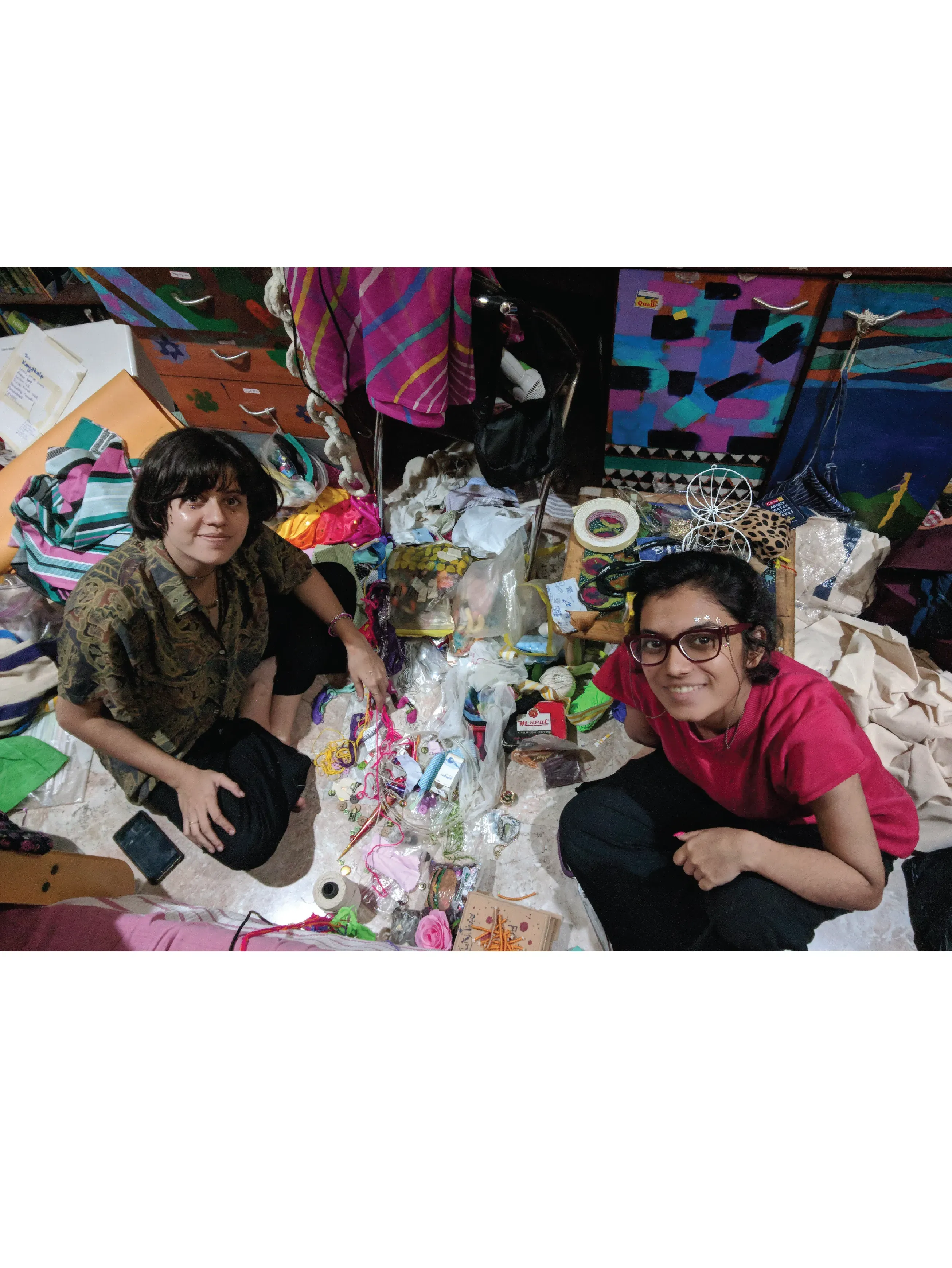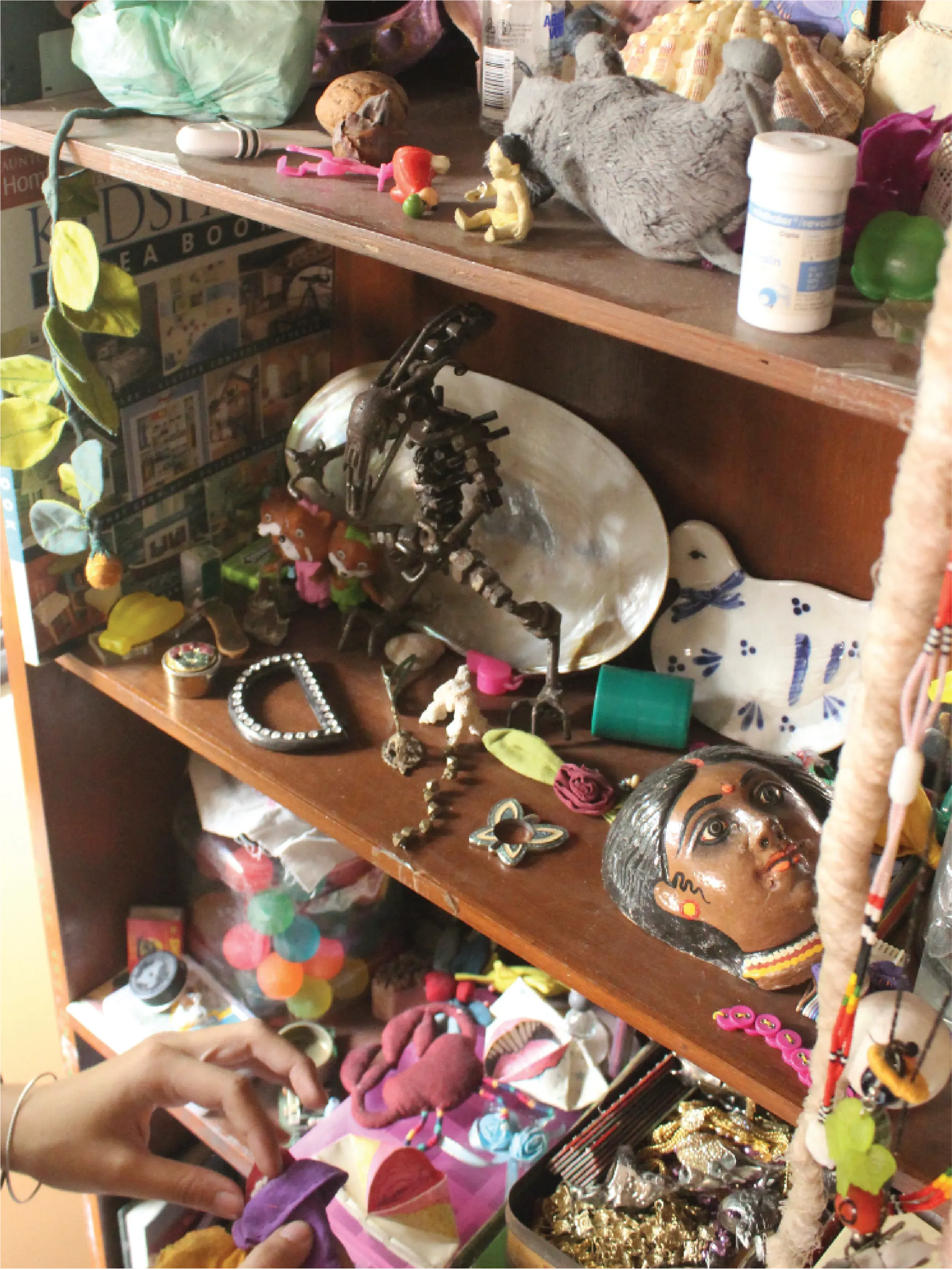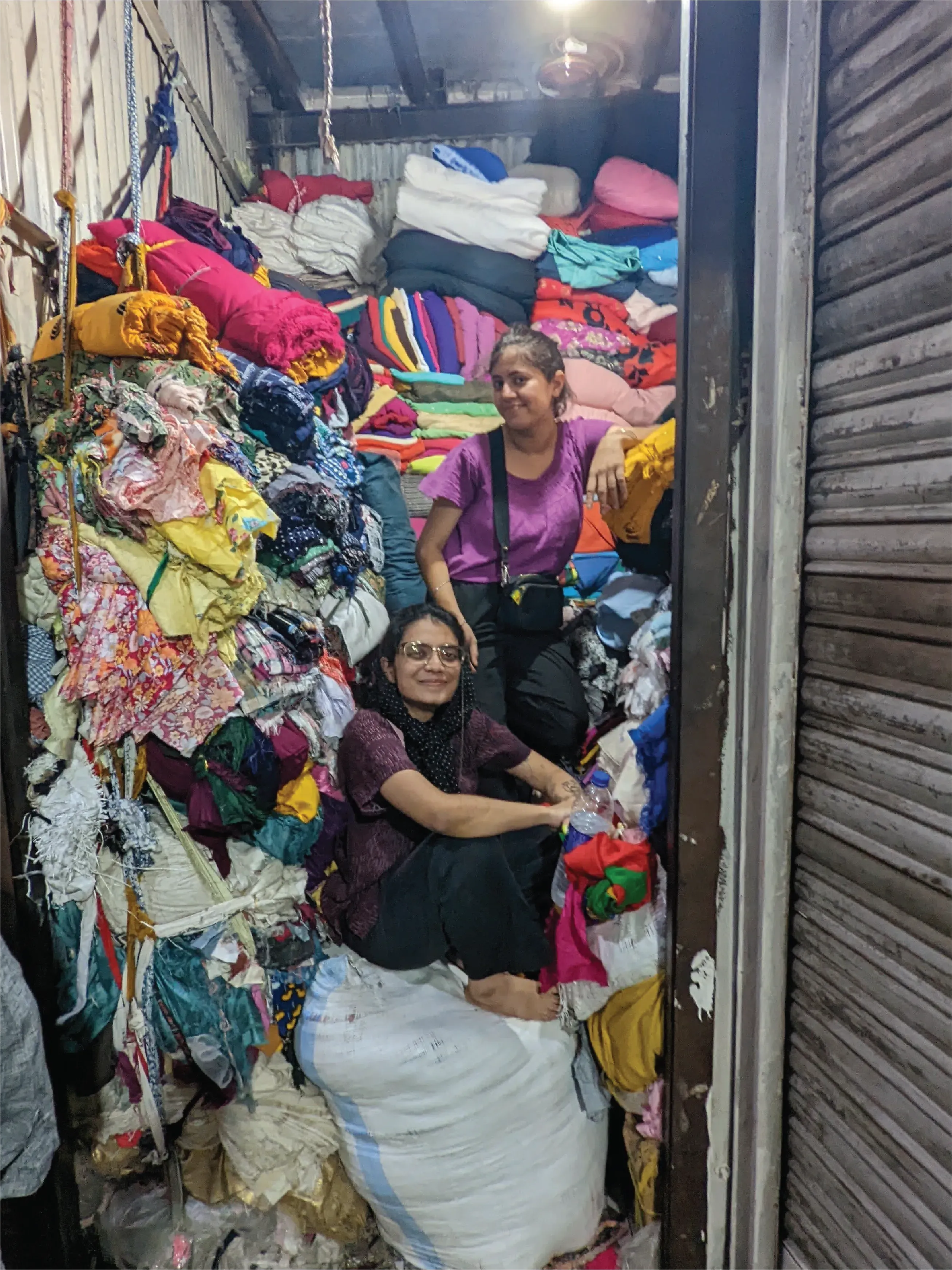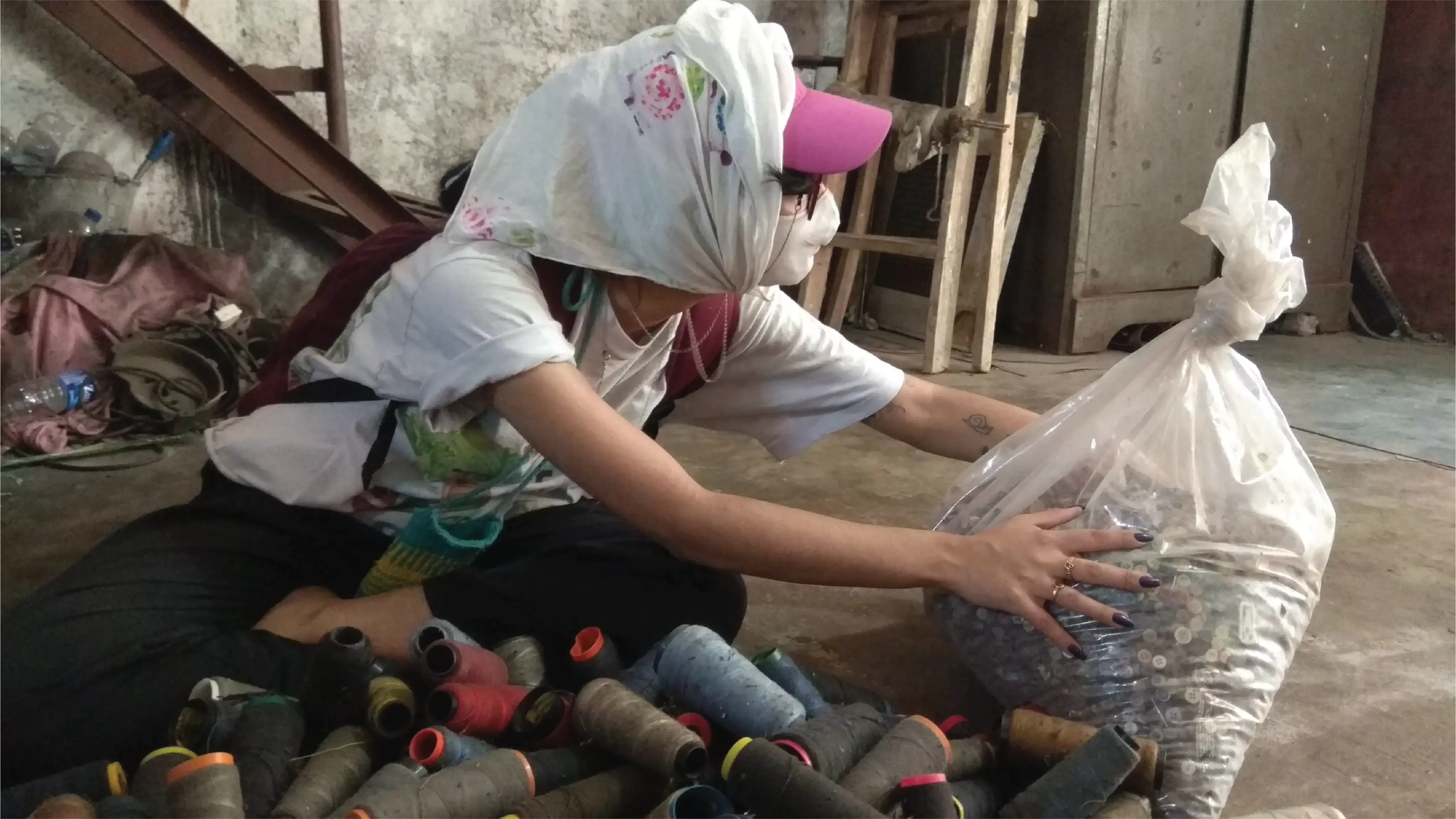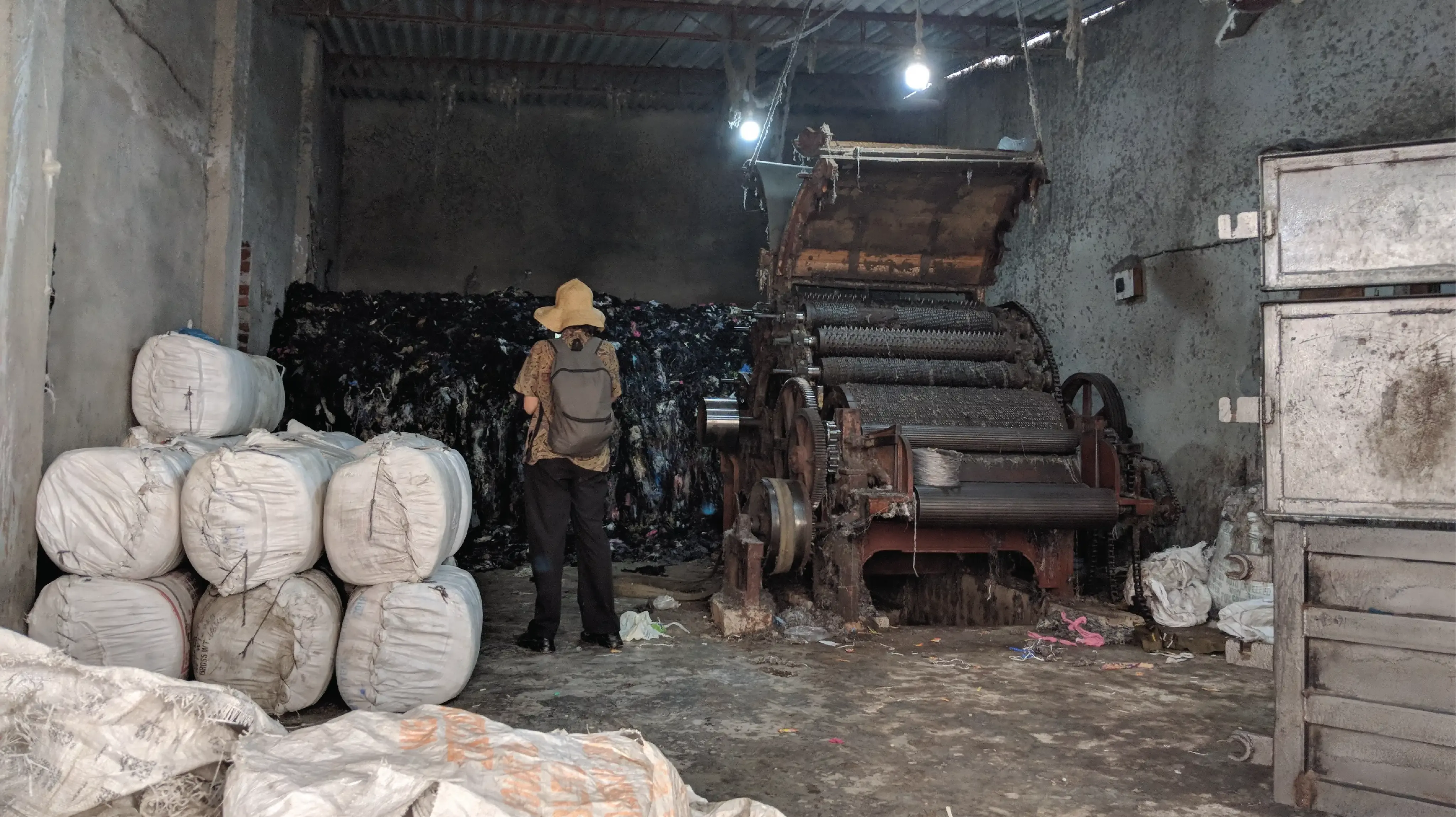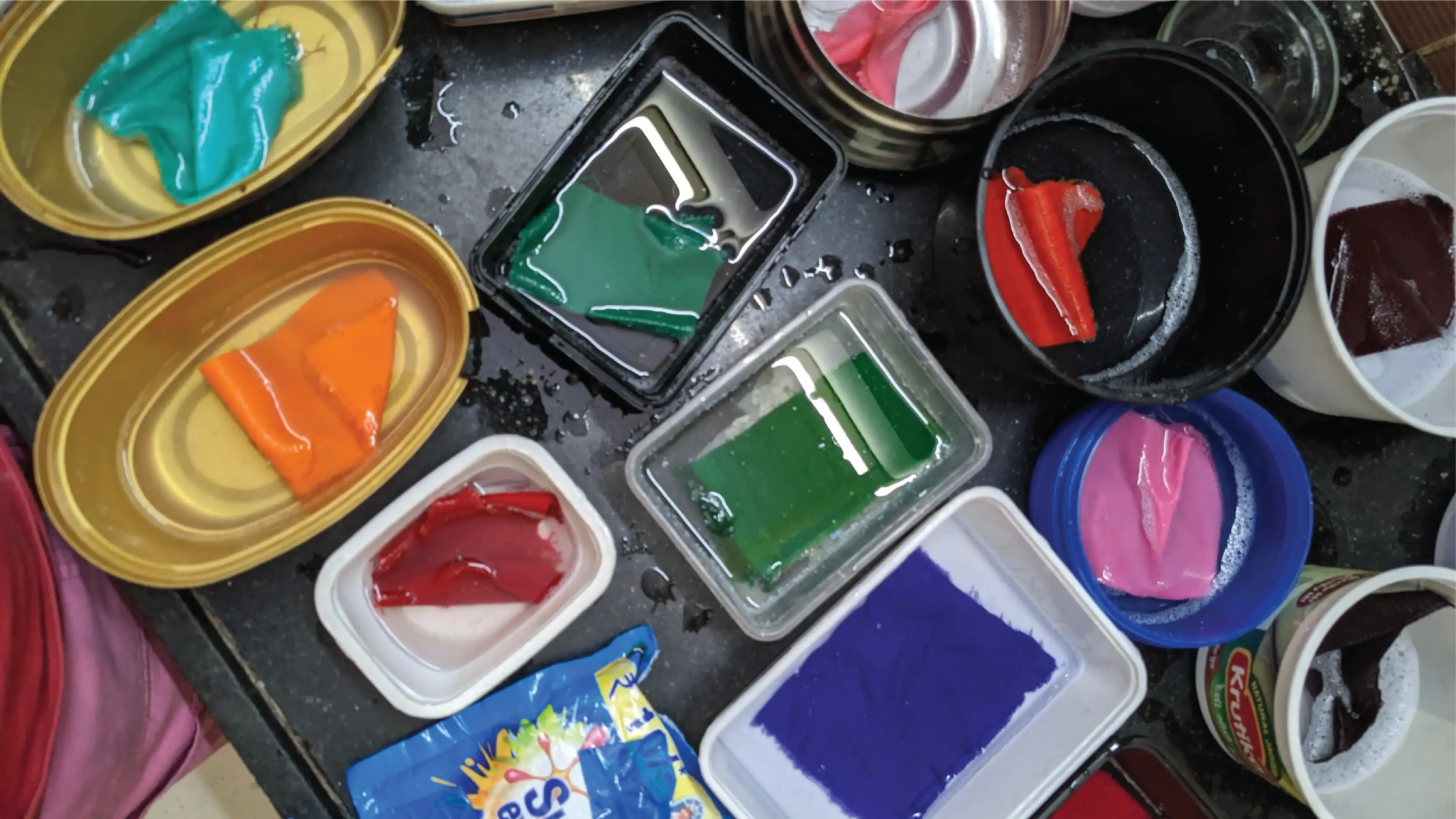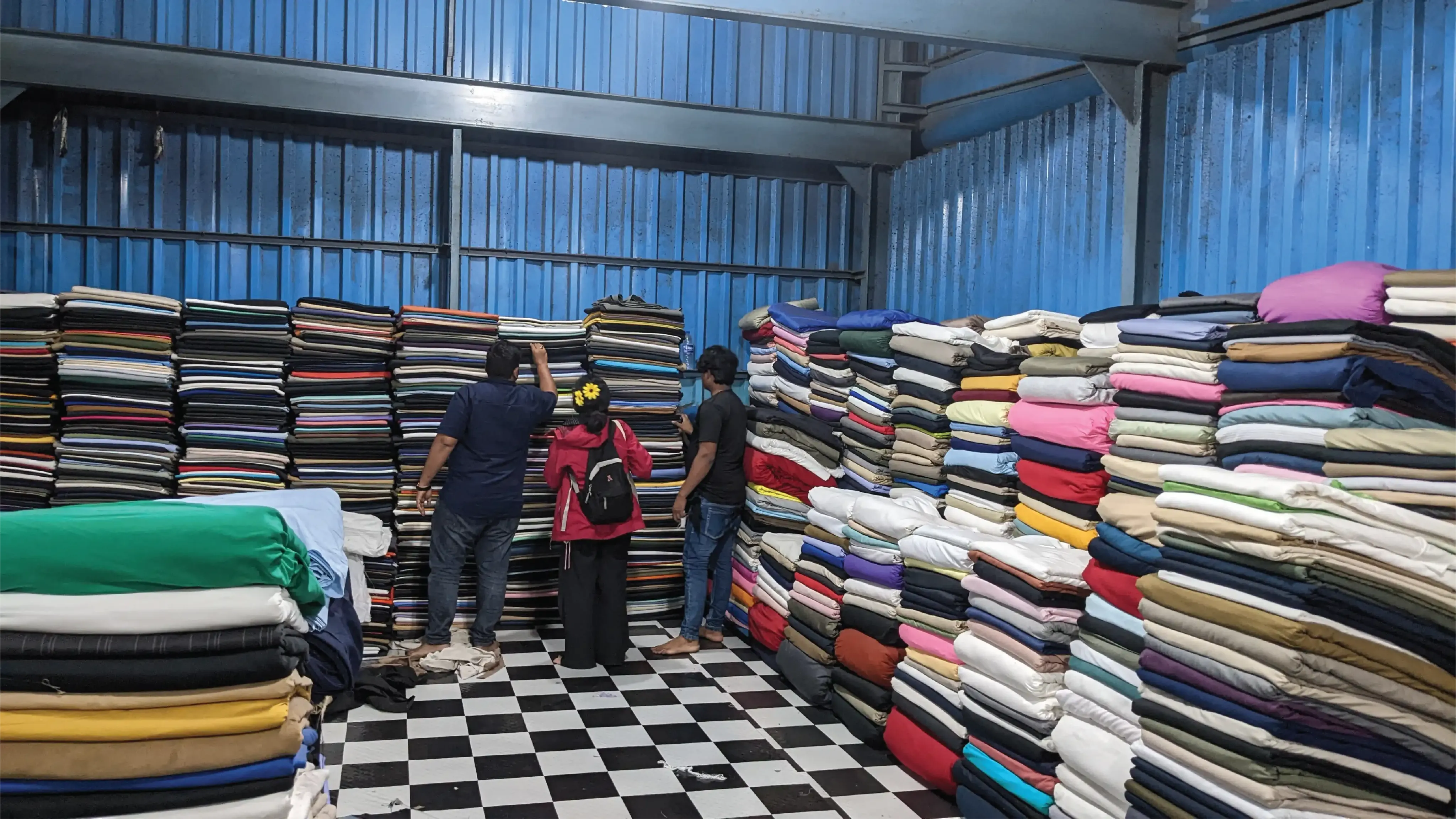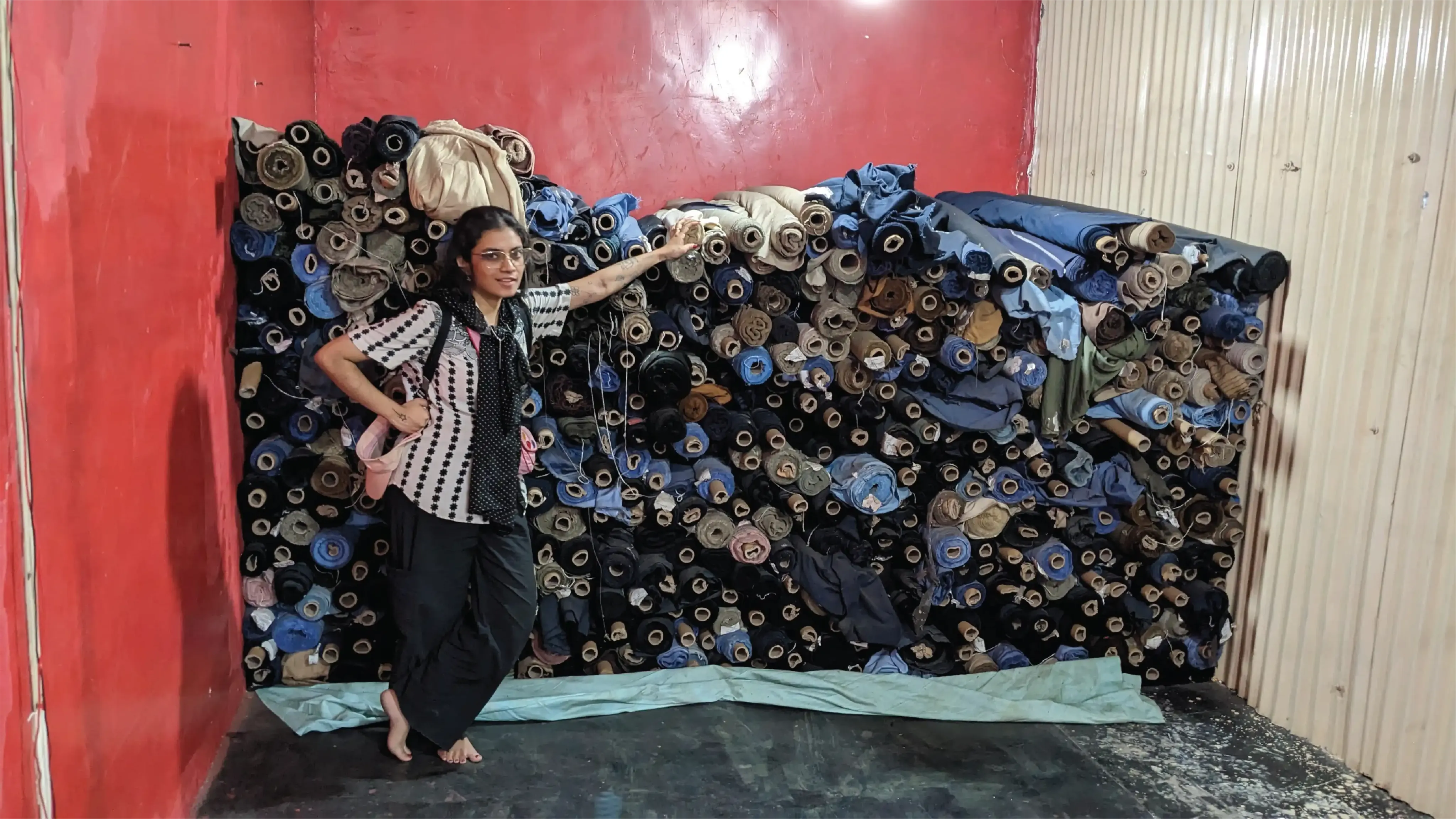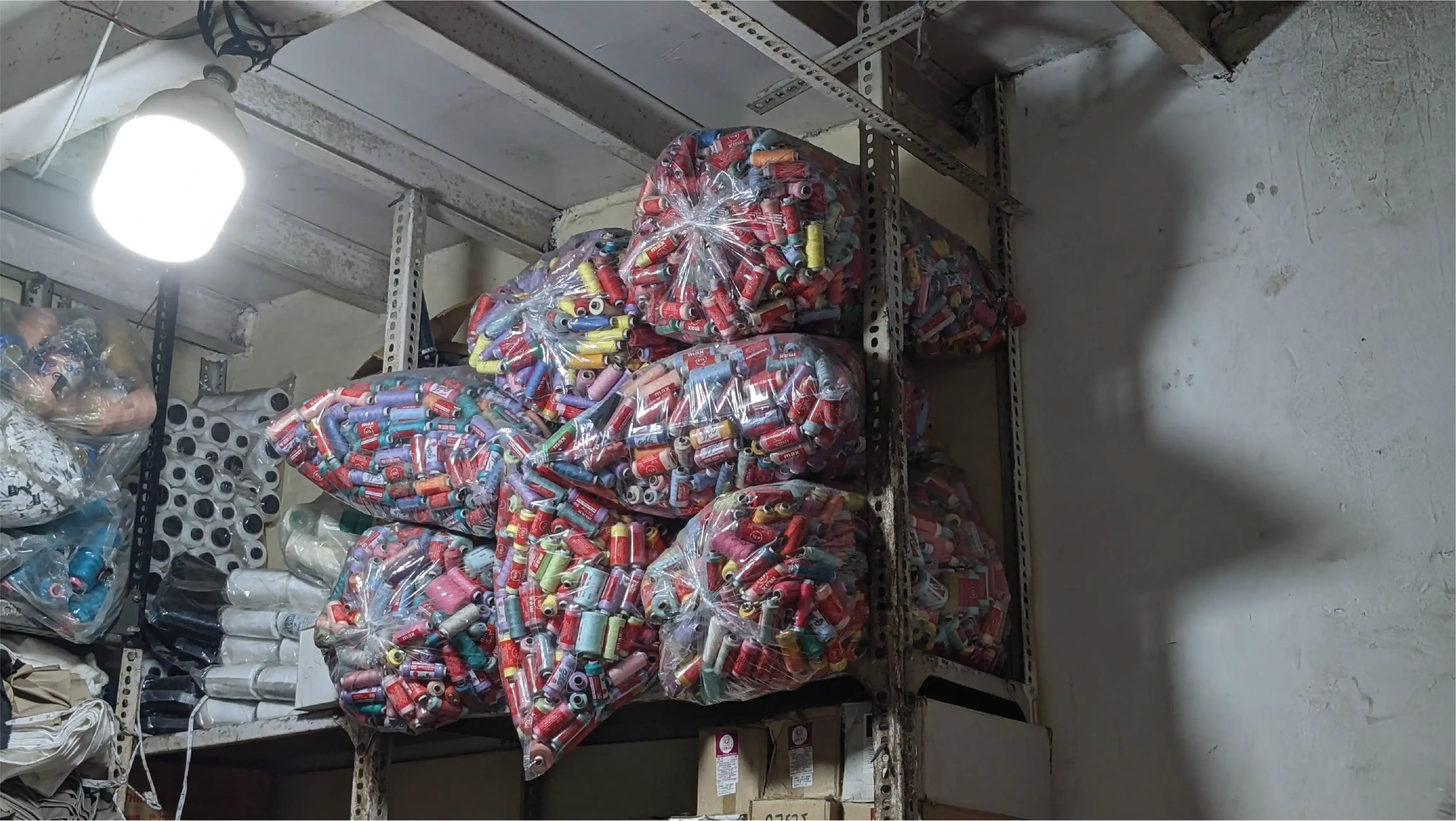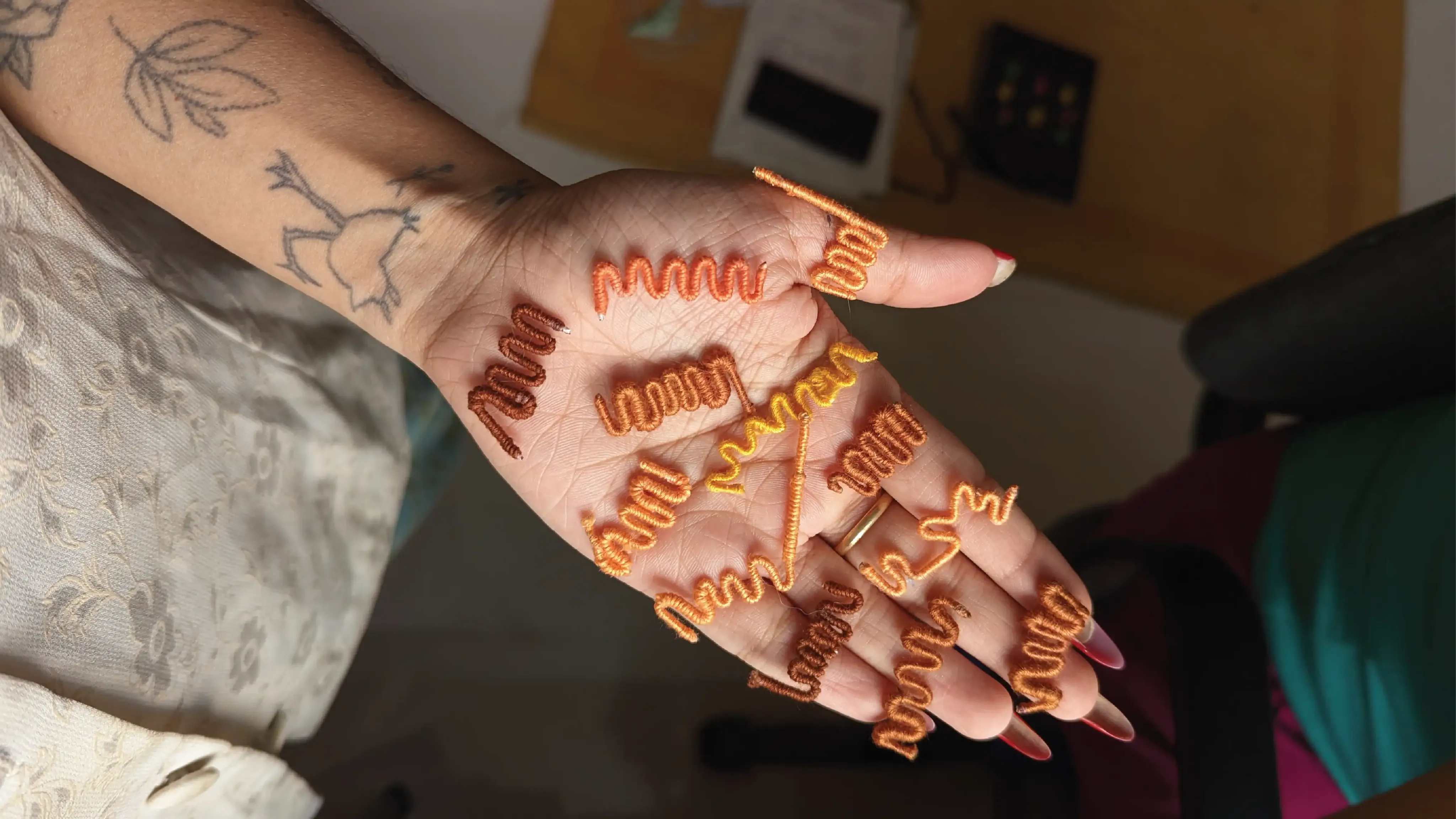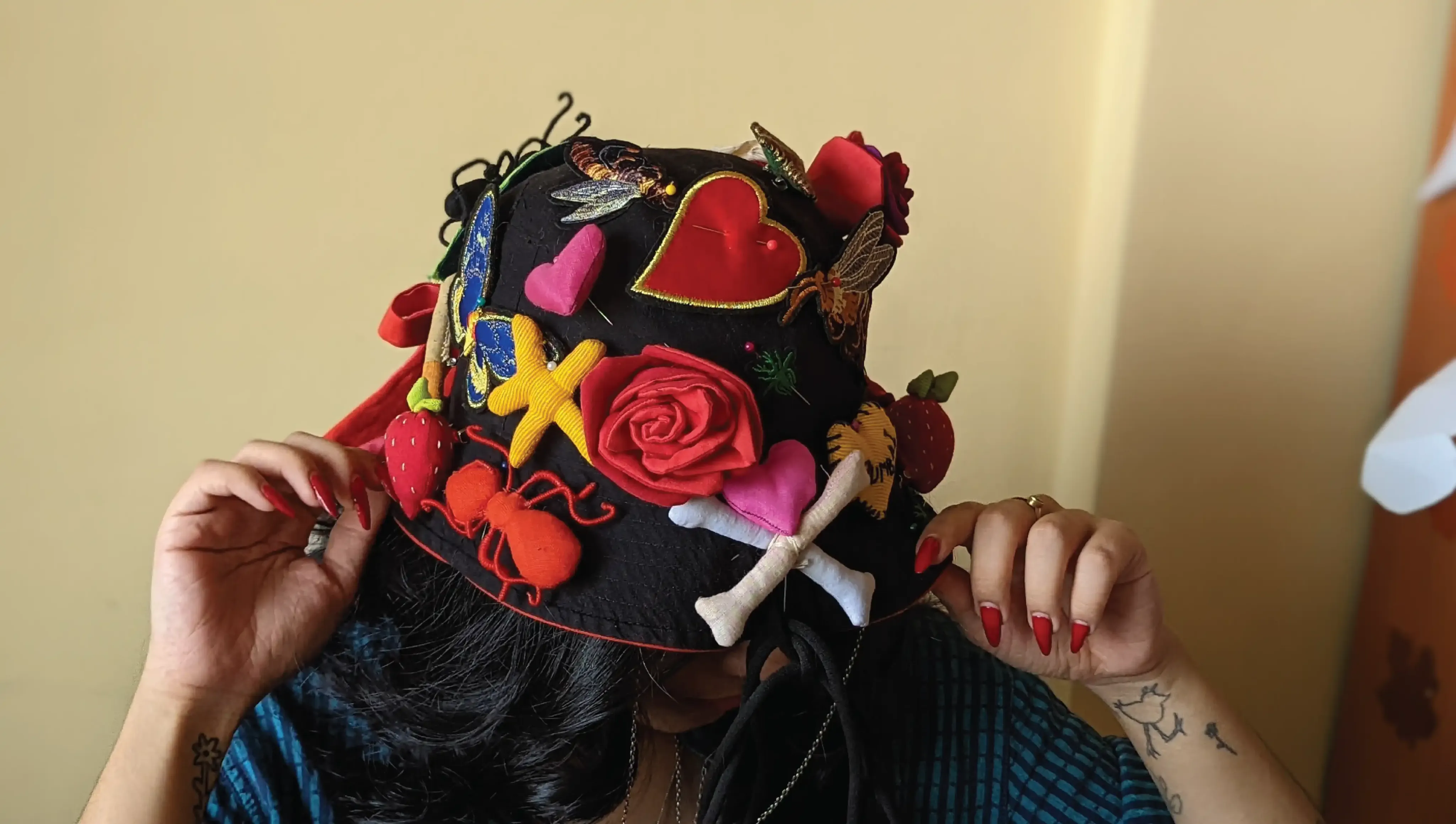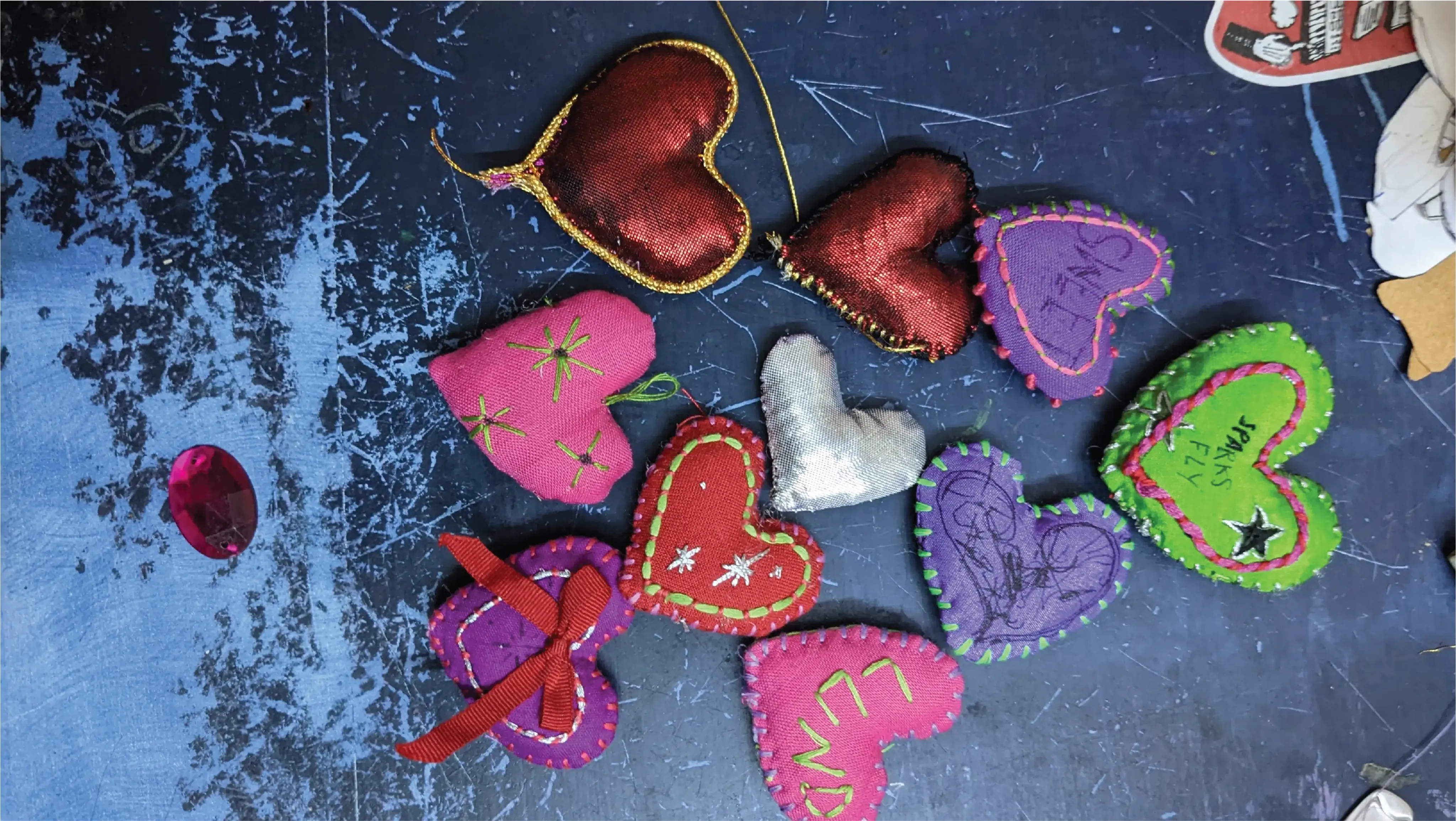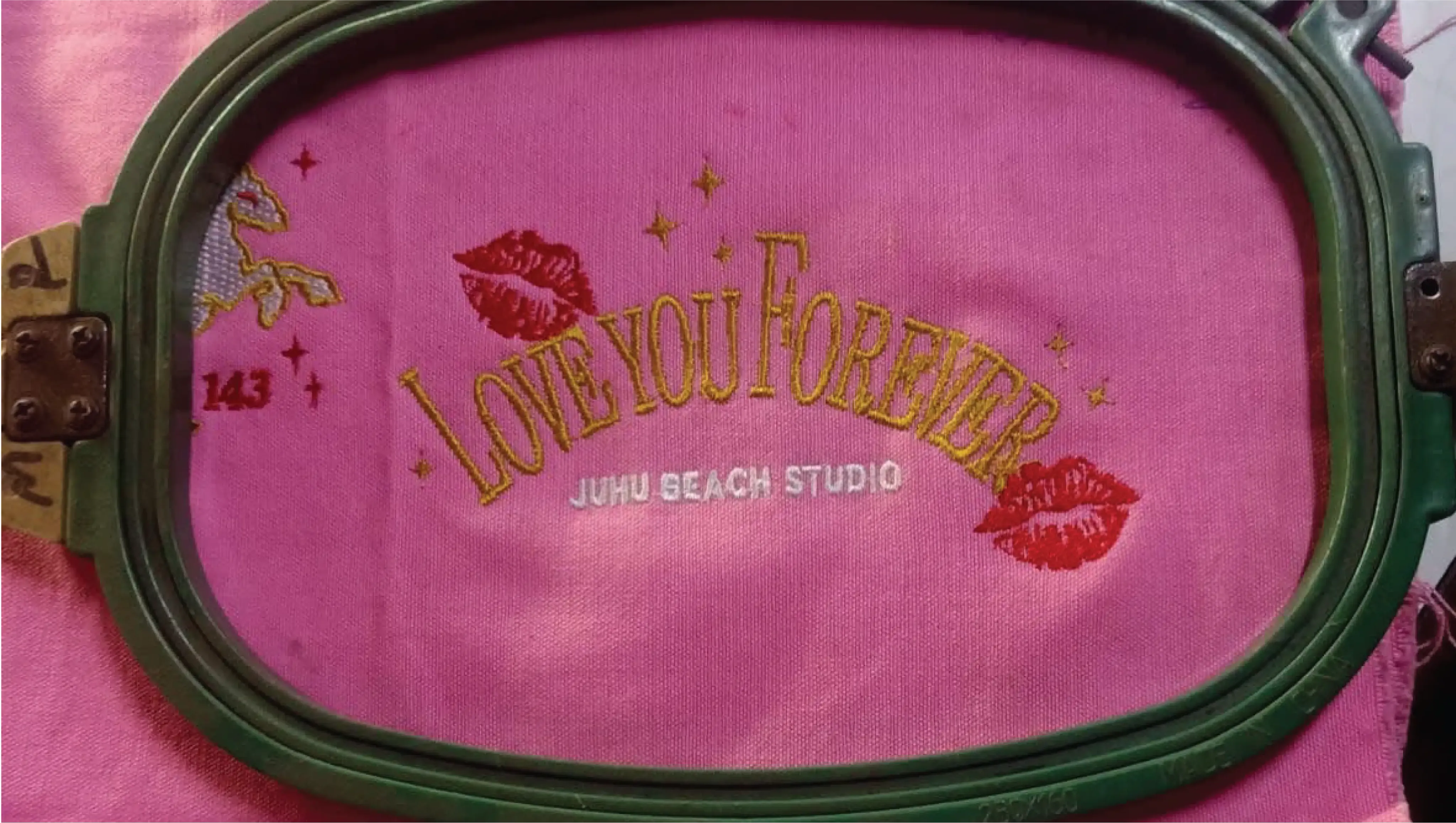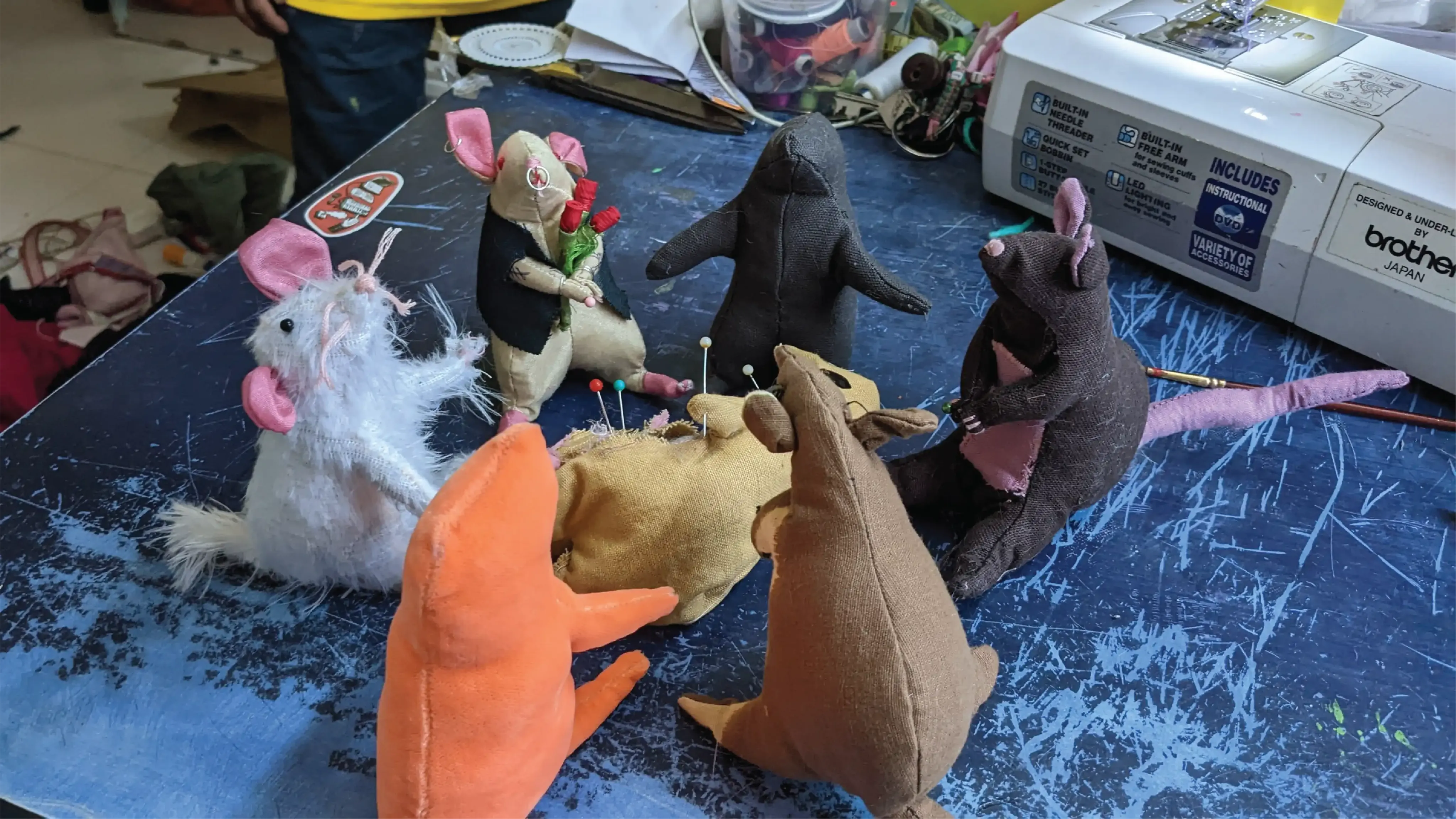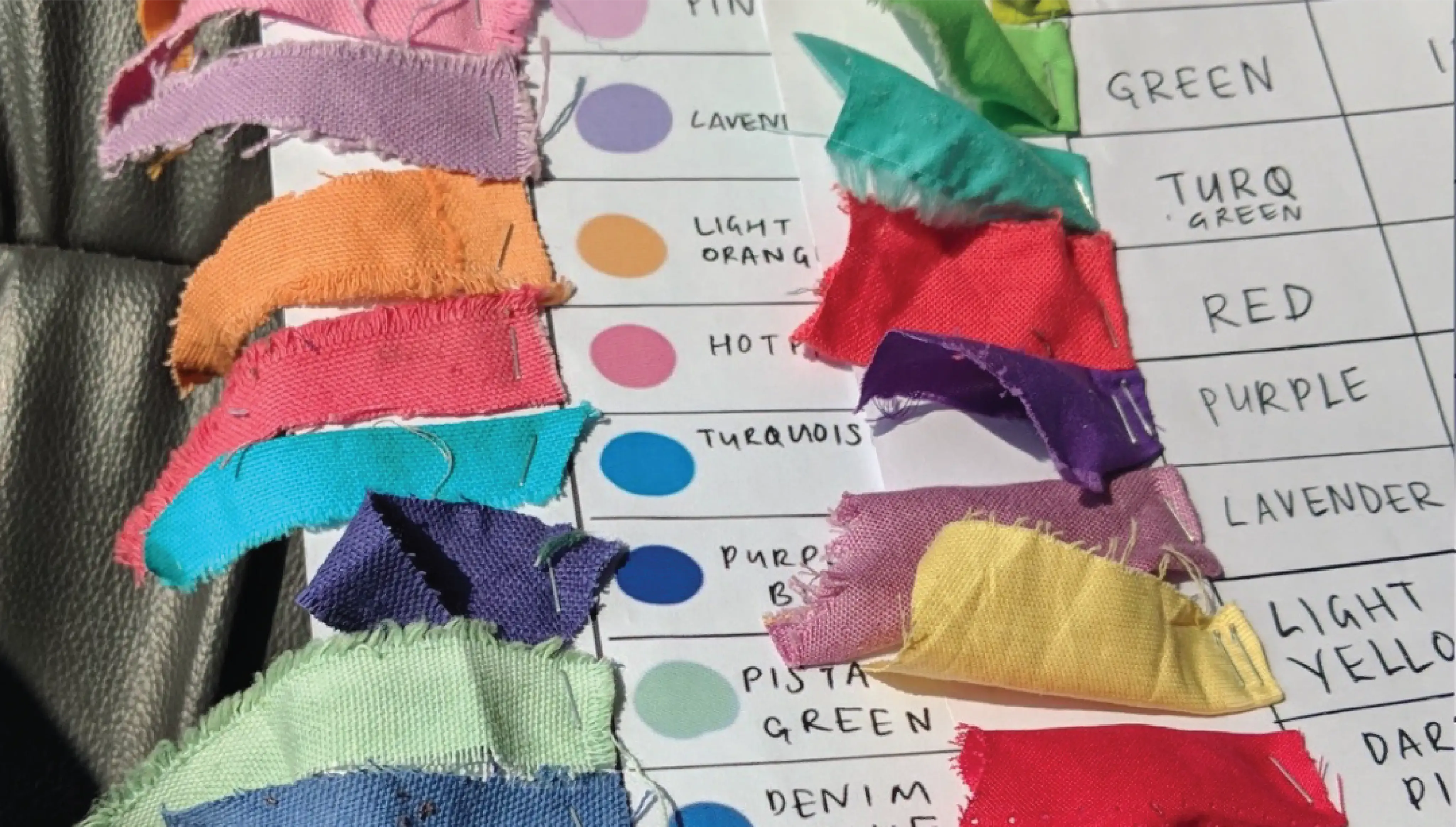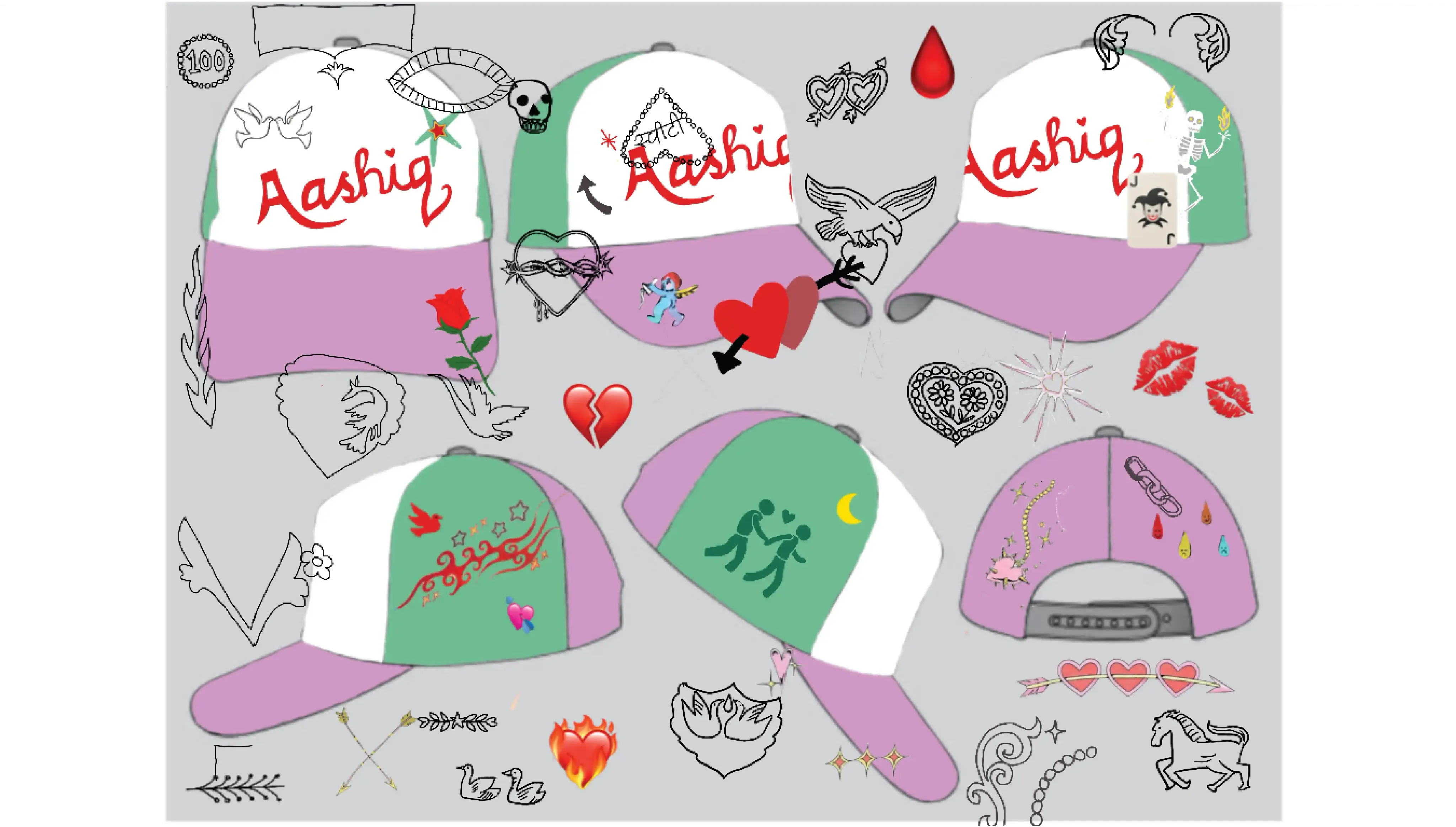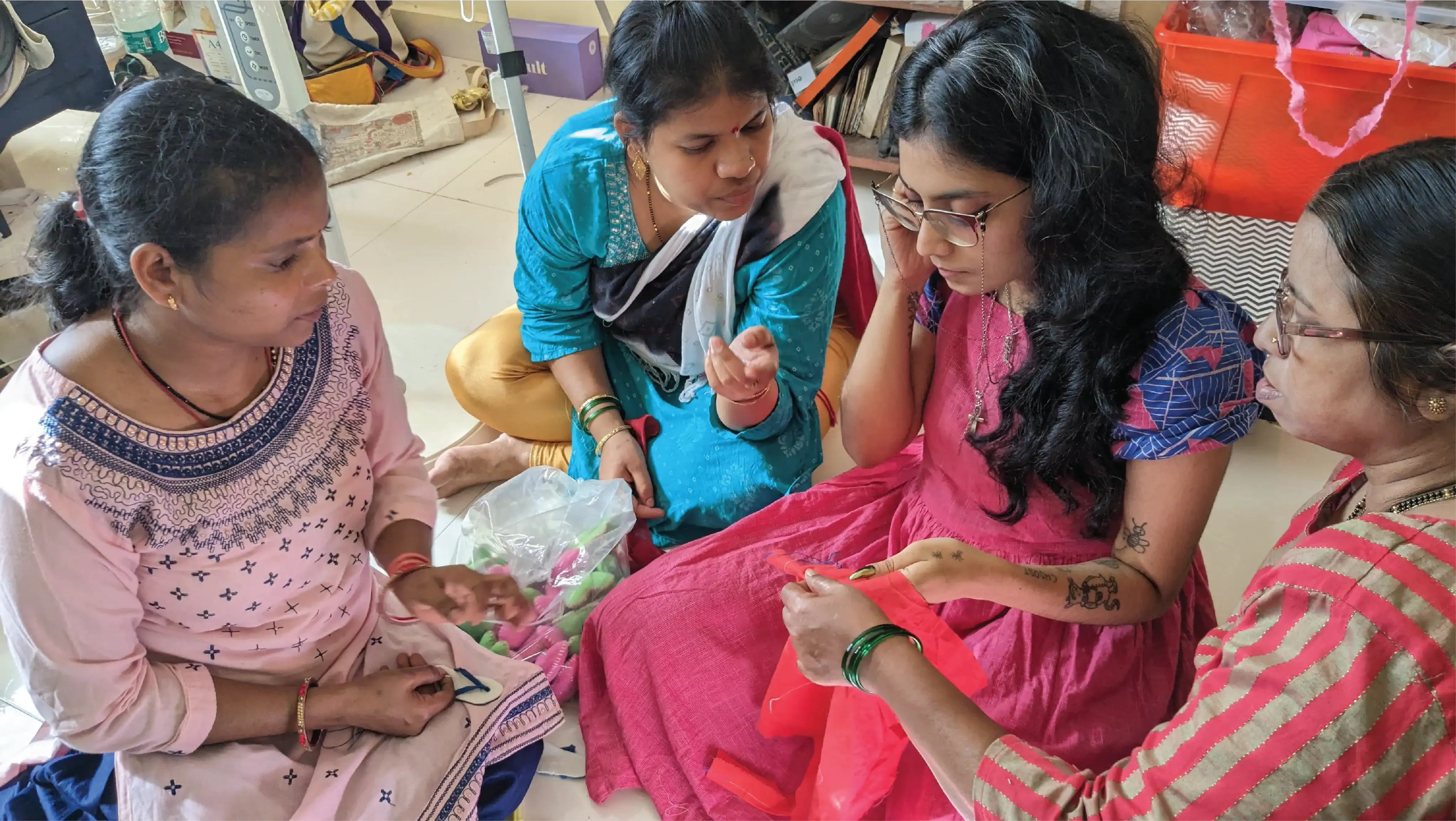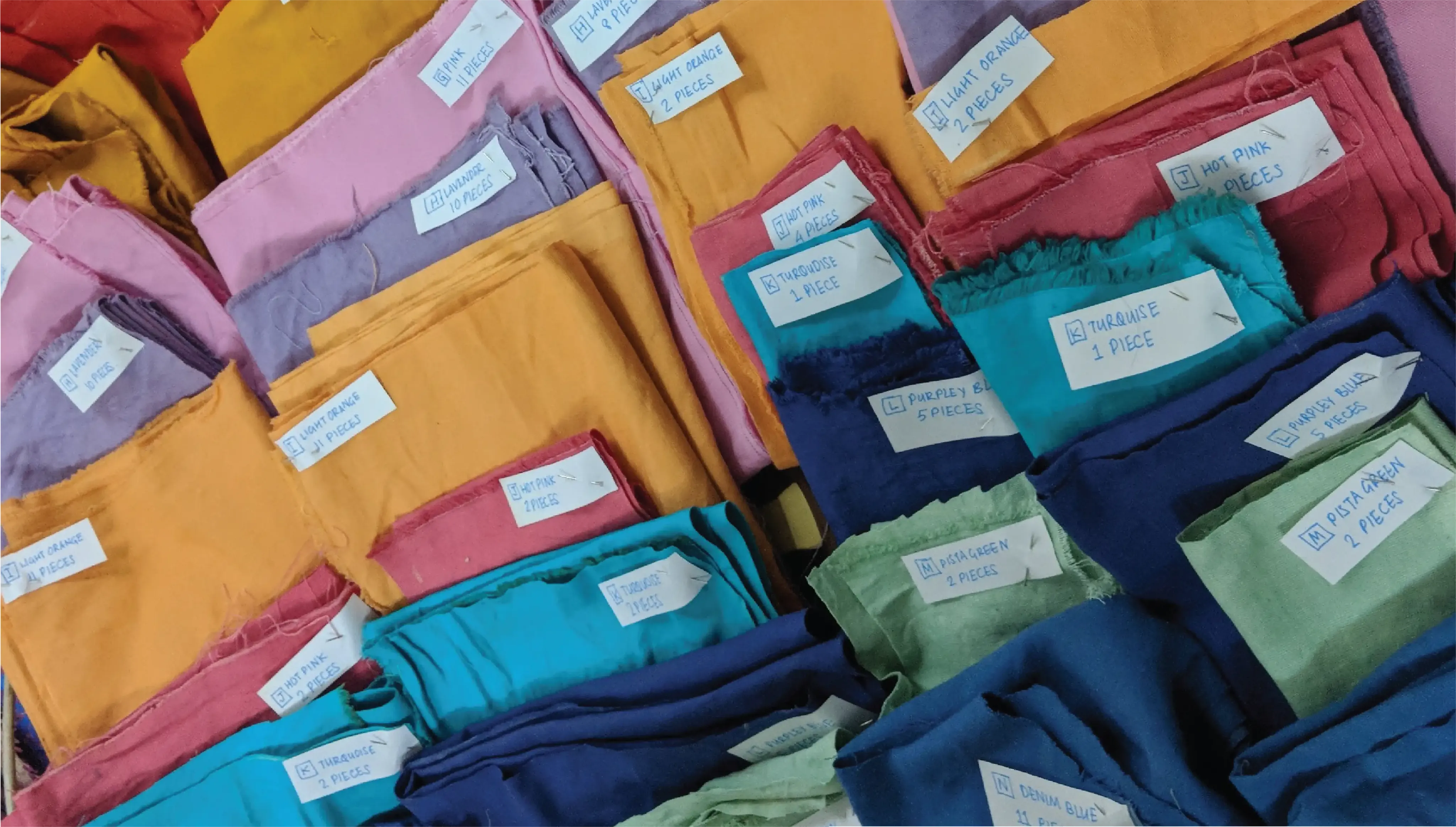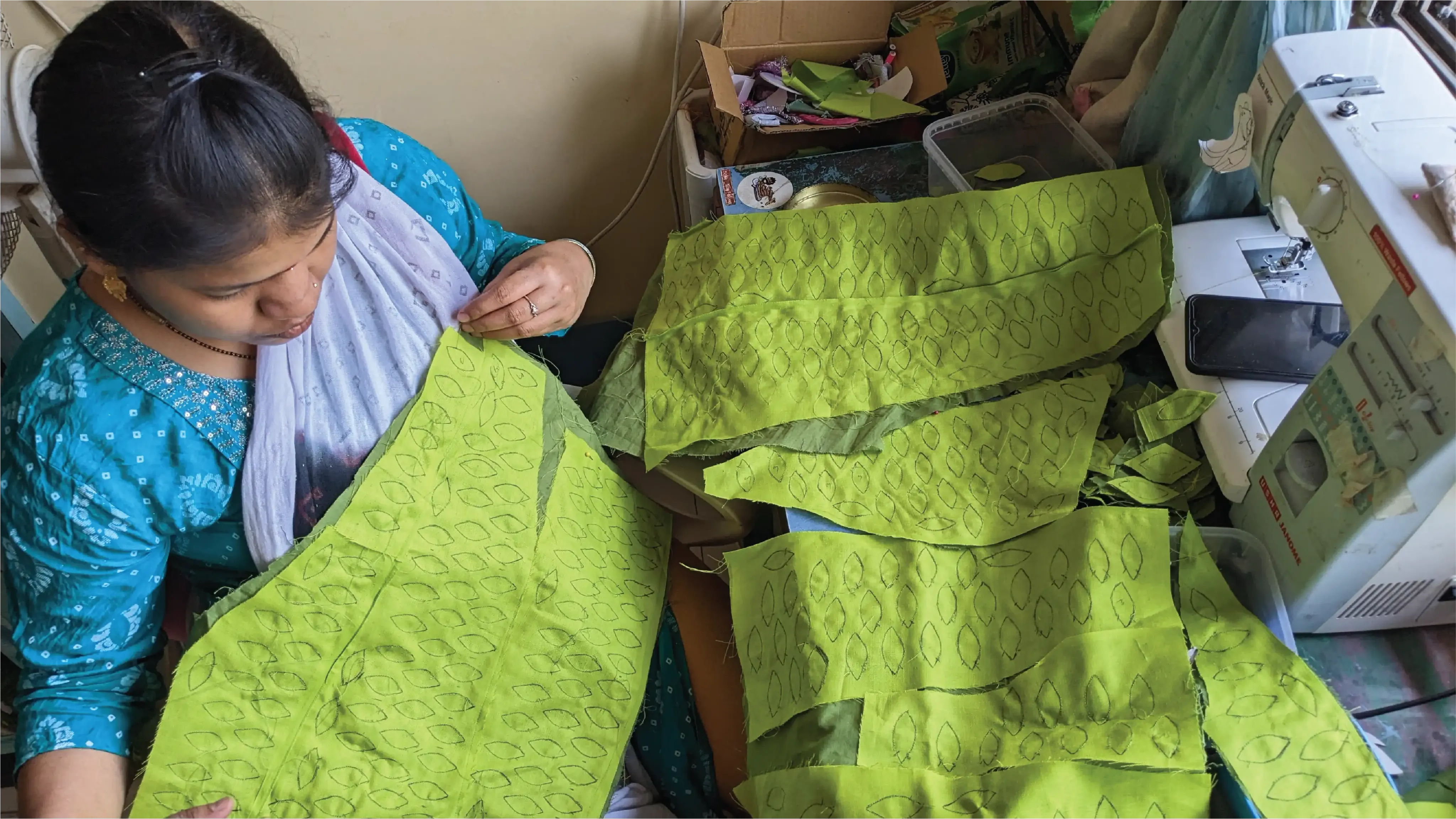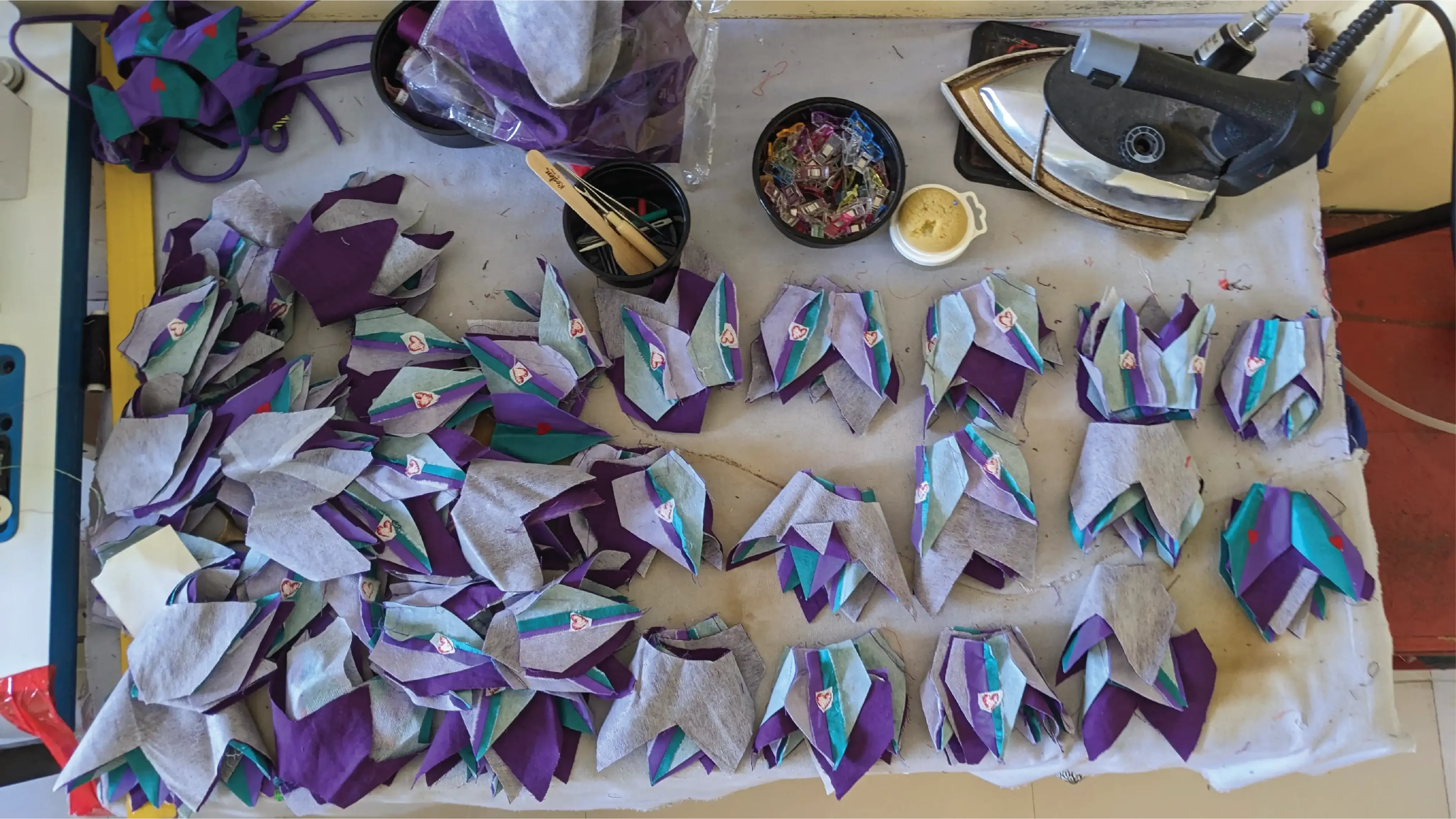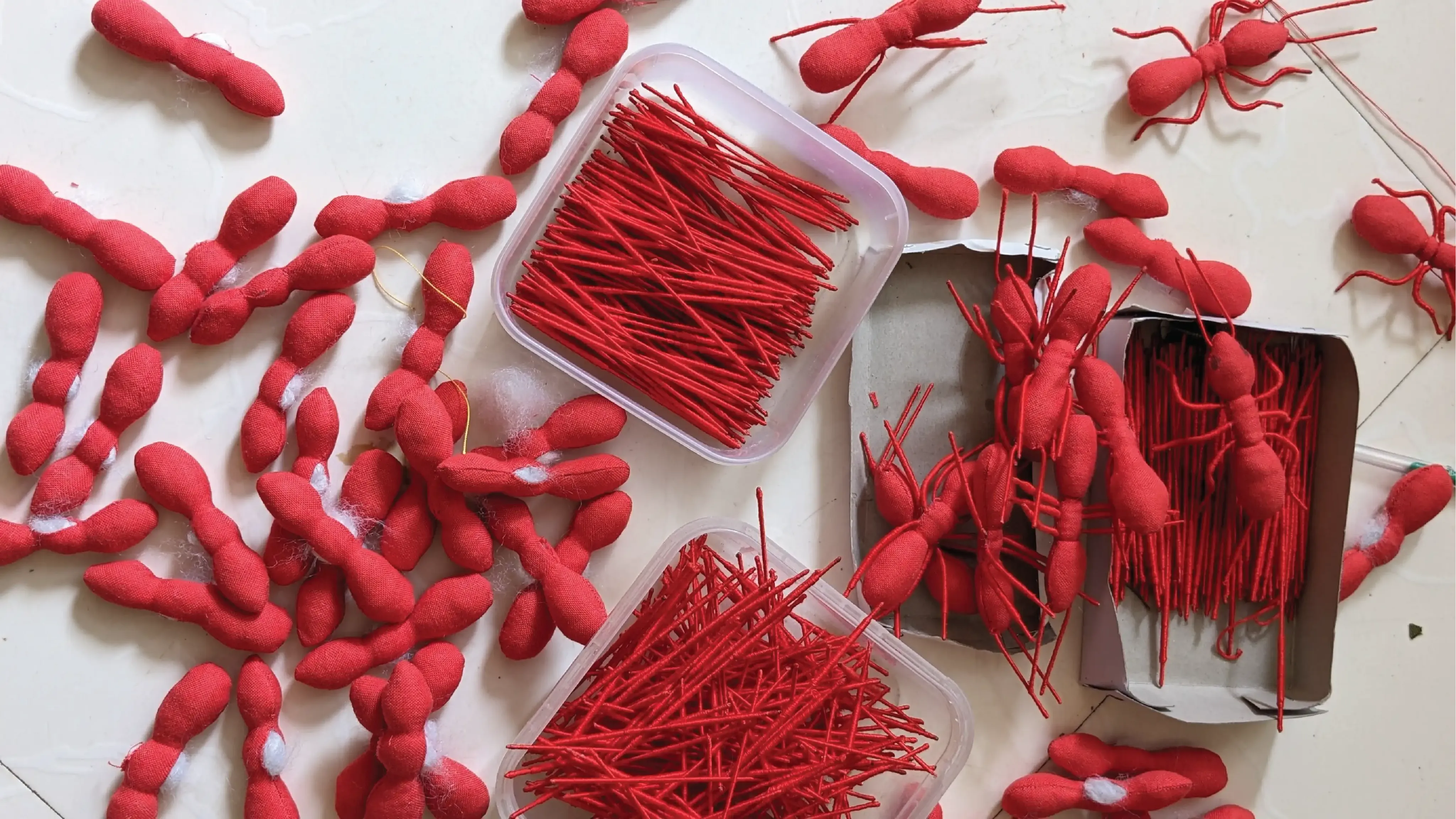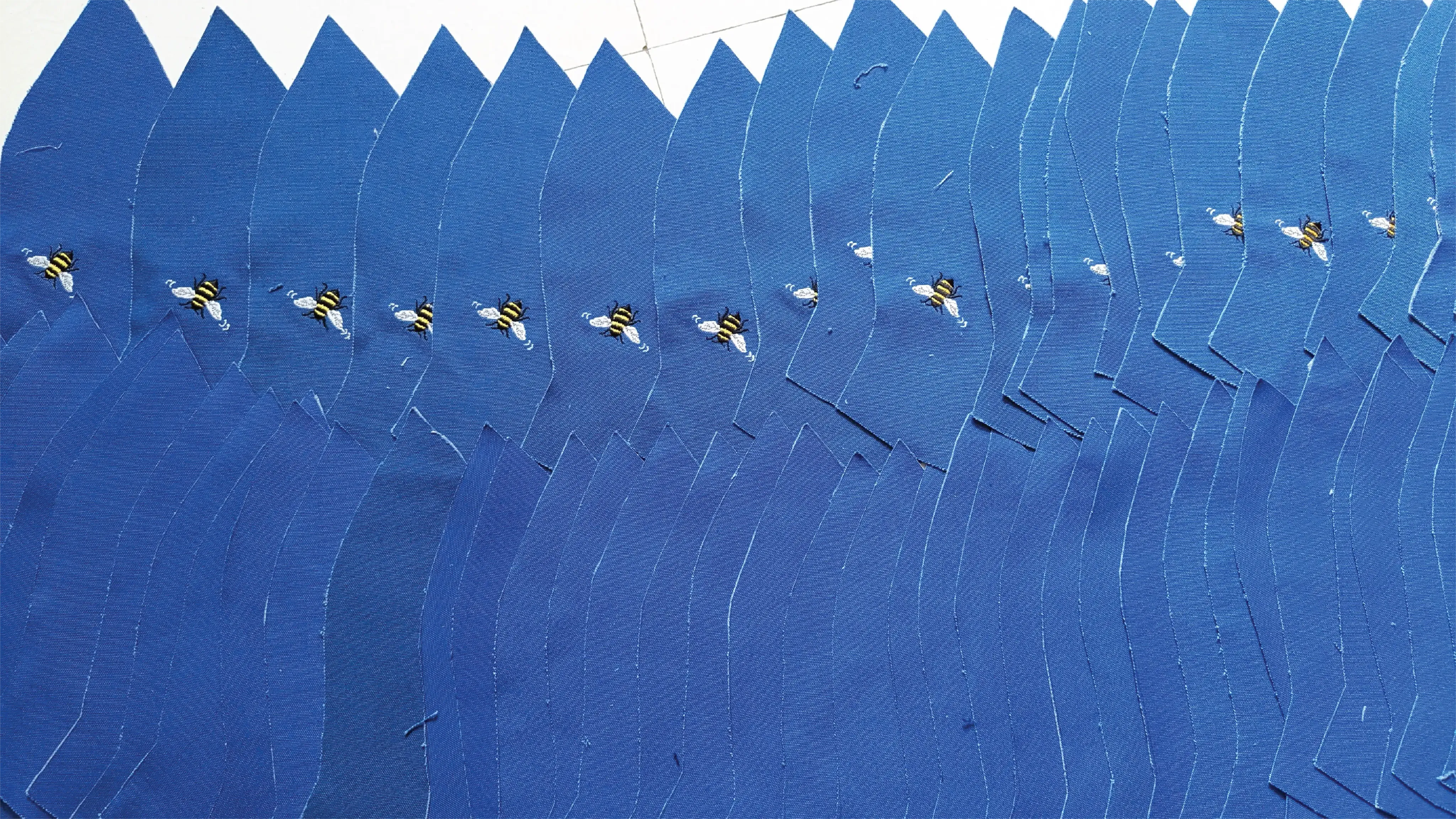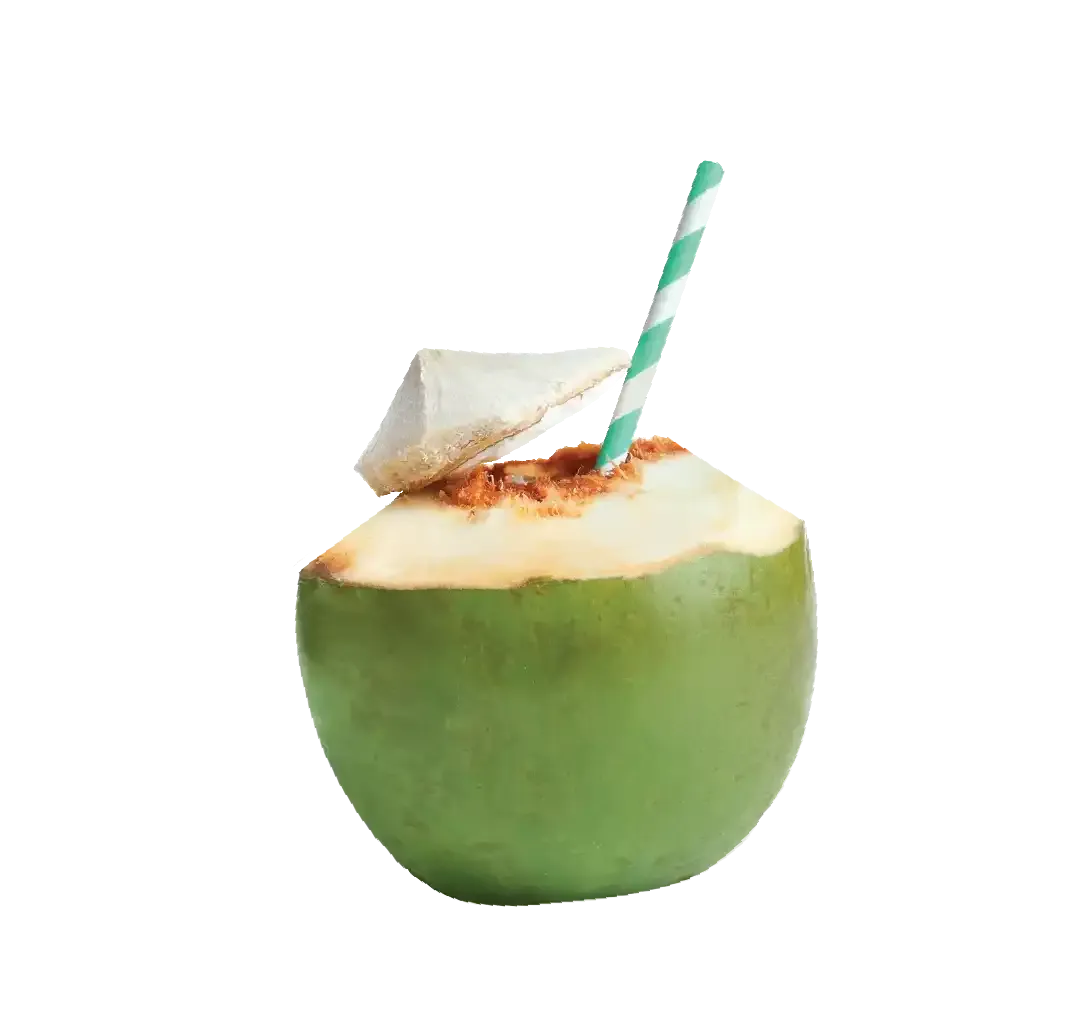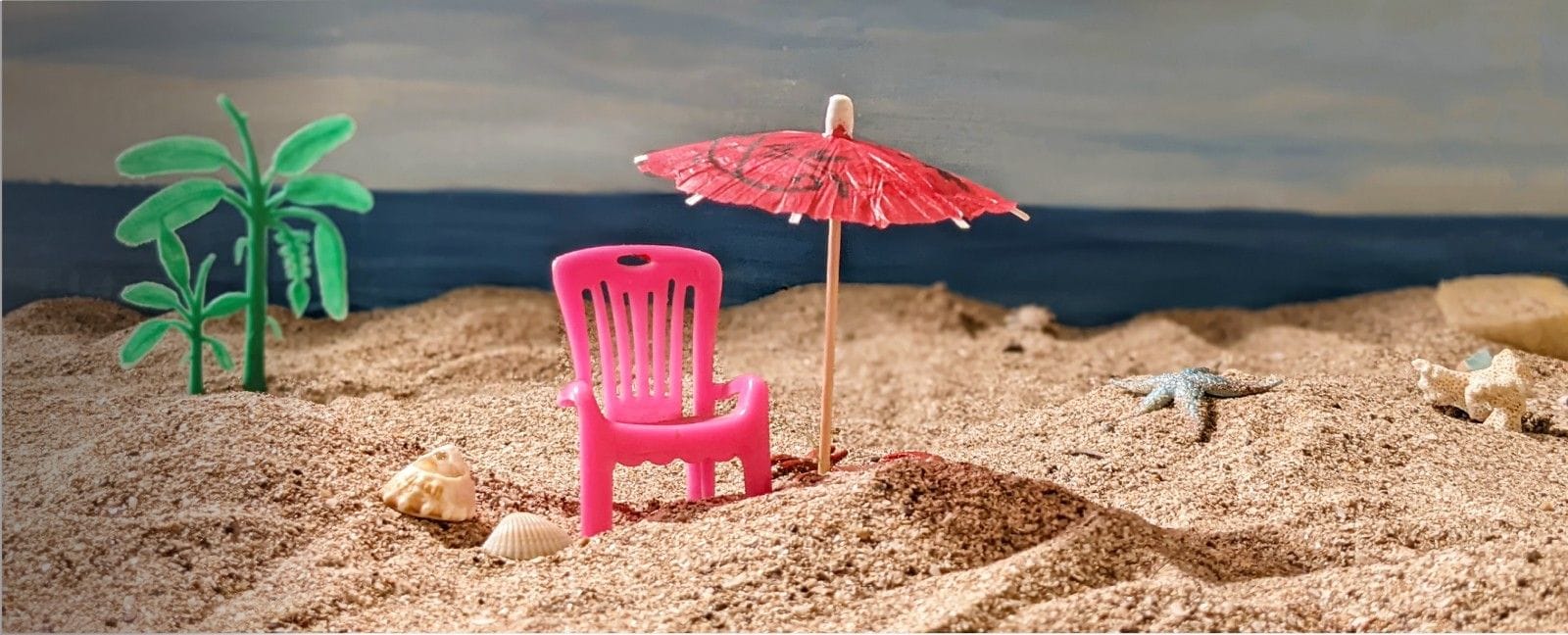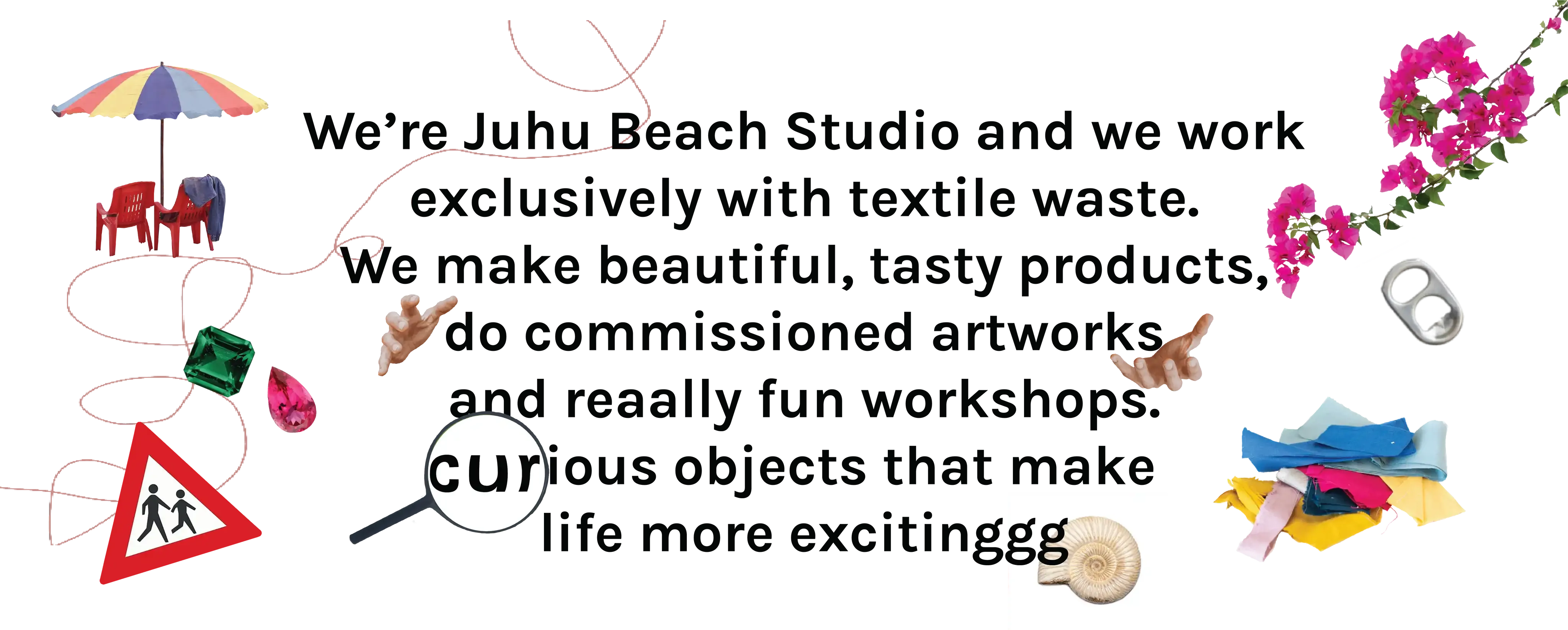
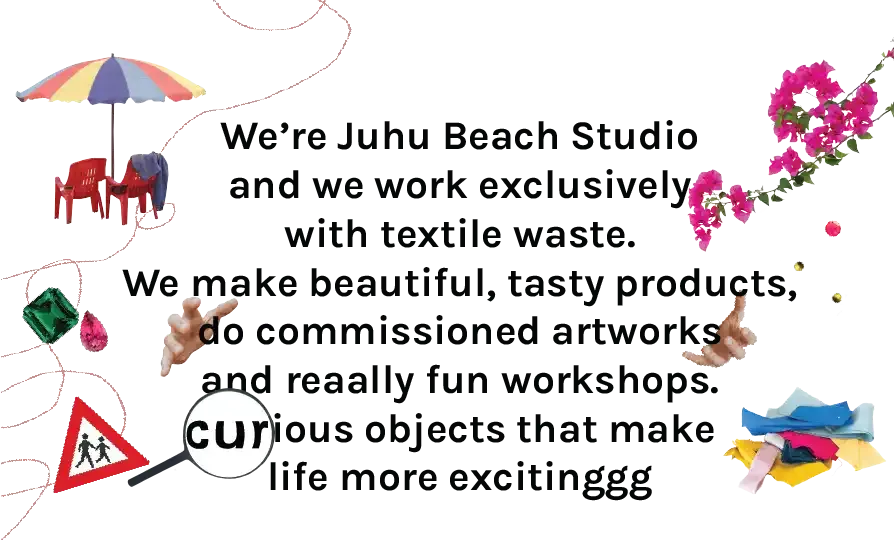
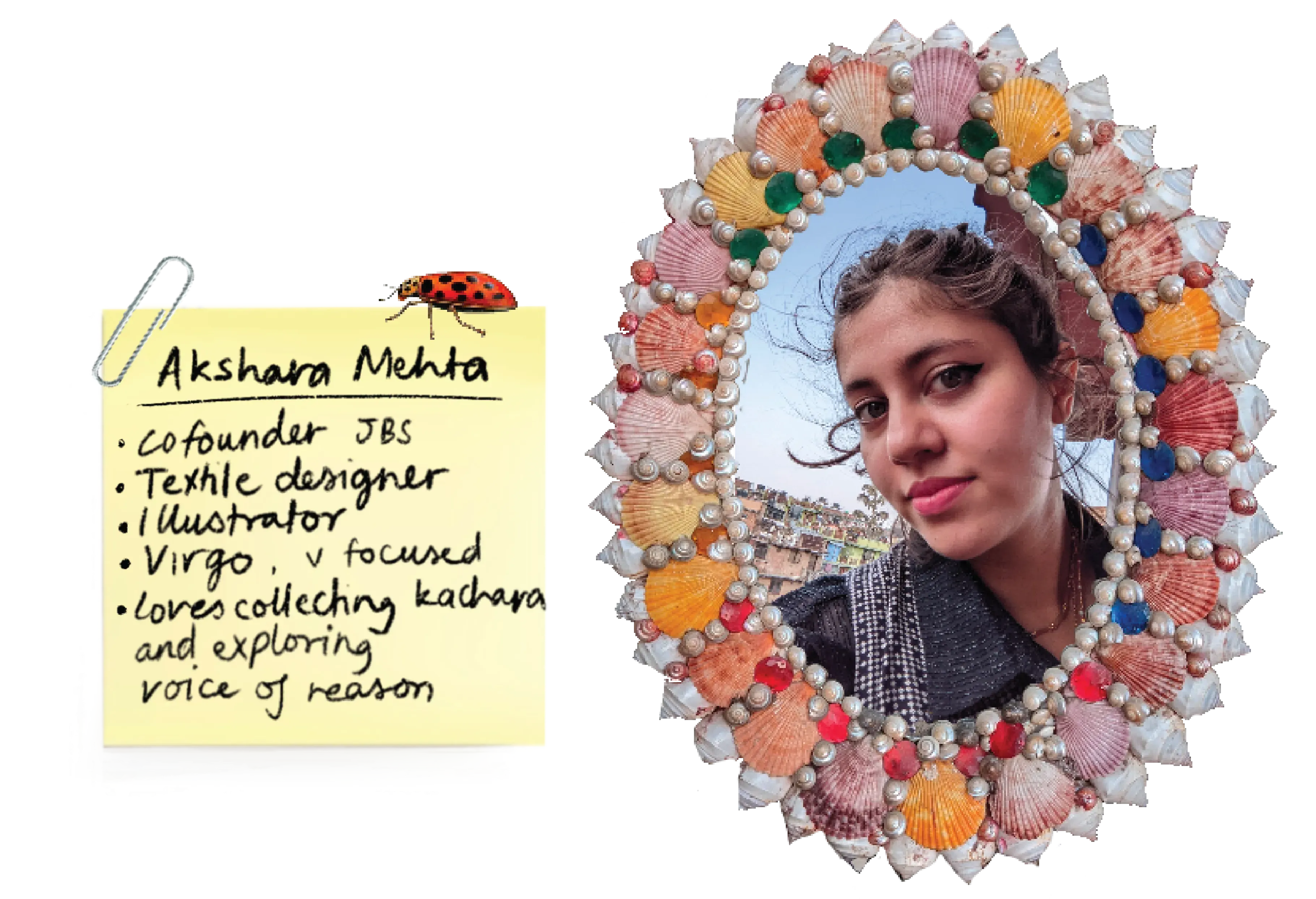
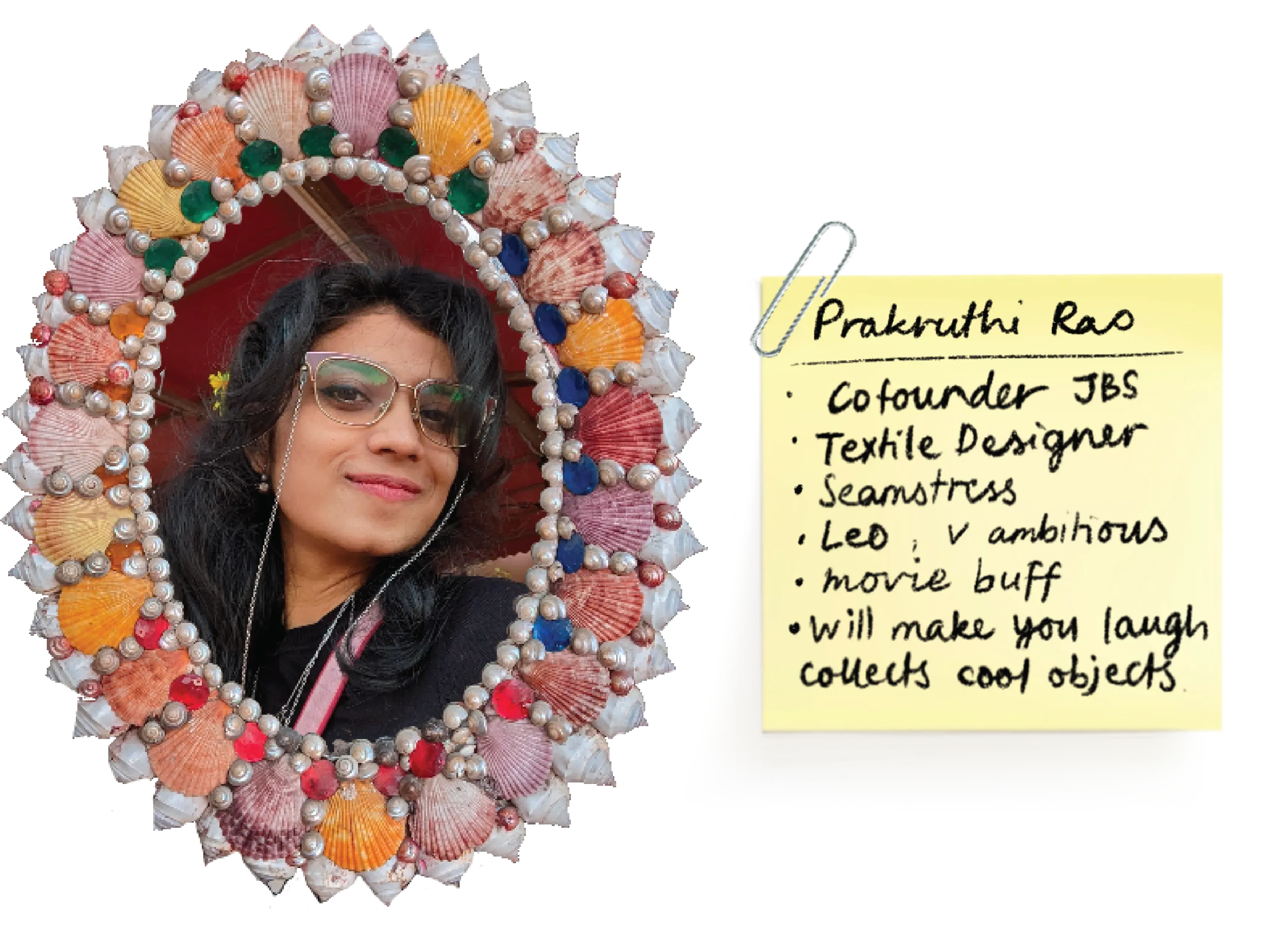
How we started
We met at college and shared the same khujli for collecting and making fascinating things, exploring markets, materials and anything that caught our eye.
Over the next few years as we worked and learned more and more about the textile industry, we were so disillusioned by how irresponsible it was, that we found ourselves back in Mumbai wondering what to do :(
We set out to explore Mumbai the manufacturing hub for some answers and found LOTS and LOTS of textile waste instead. This was our chance to make the things we wanted, without making a bad problem even worse and so JBS was bornnn
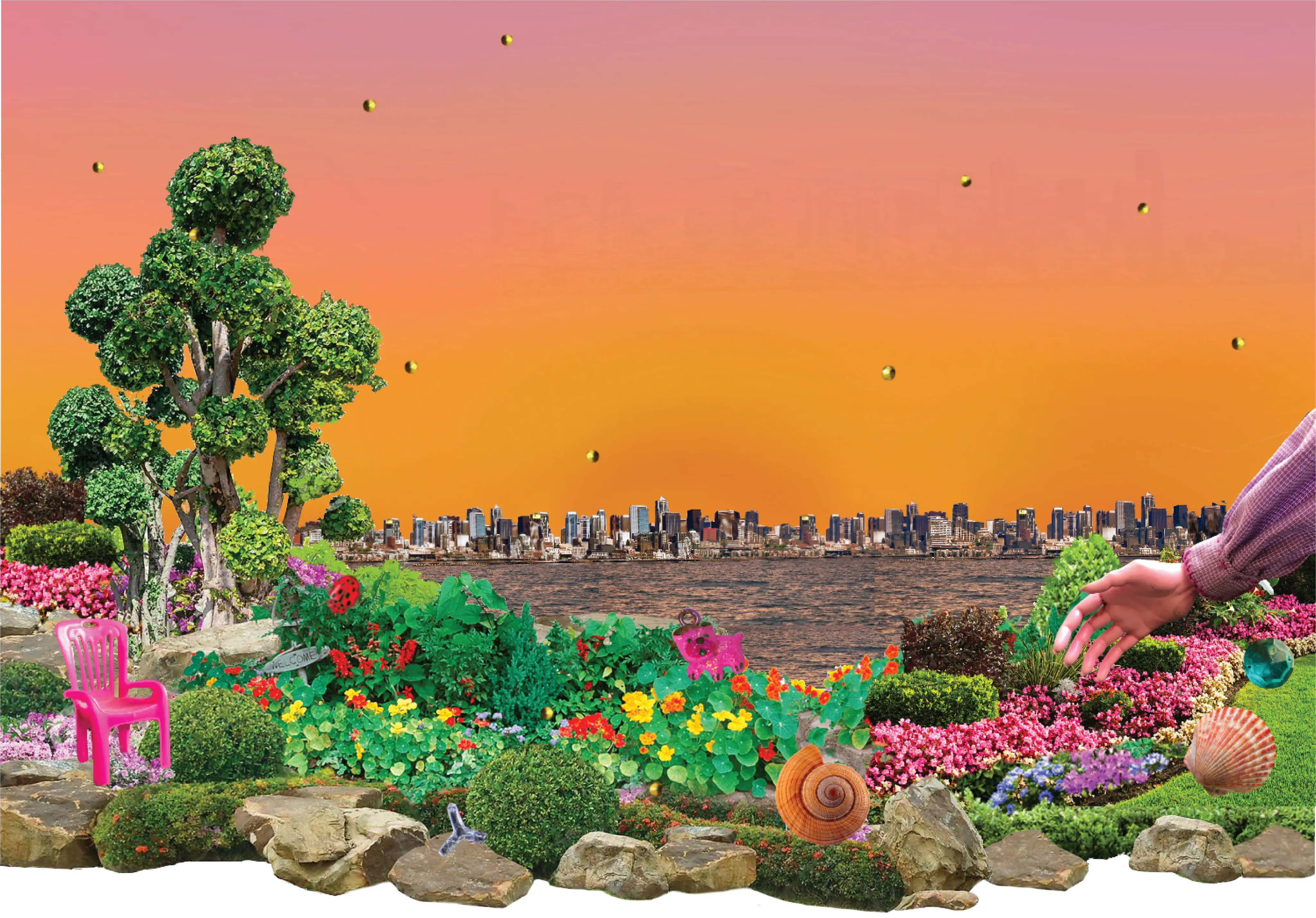
What's a Juhu Beach
It’s the most wholesome place in Mumbai, and our favourite part of the city. People from all walks of life come here to chill, run with their dogs, practice a skill. Everyone is so happy to escape from the craziness of real life for a little bit to just sit by the water, eat some bhel and daydream.
This is basically how we wanted this brand to feel too, just like at the beach, everyone is welcome, anything can happen, no cynicism, just vibes. But because real life might actually be inescapable you can always make it more fun!

What's a Juhu Beach
It’s the most wholesome place in Mumbai, and our favourite part of the city. People from all walks of life come here to chill, run with their dogs, practice a skill, everyone is so happy to escape from the craziness of real life for a little bit to just sit by the water, eat some bhel and daydream.
This is basically how we wanted this brand to feel too, just like at the beach, everyone is welcome, anything can happen, no cynicism, just vibes. While real life may be inescapable you can always make it more fun
waste fellows
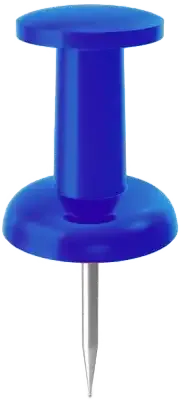

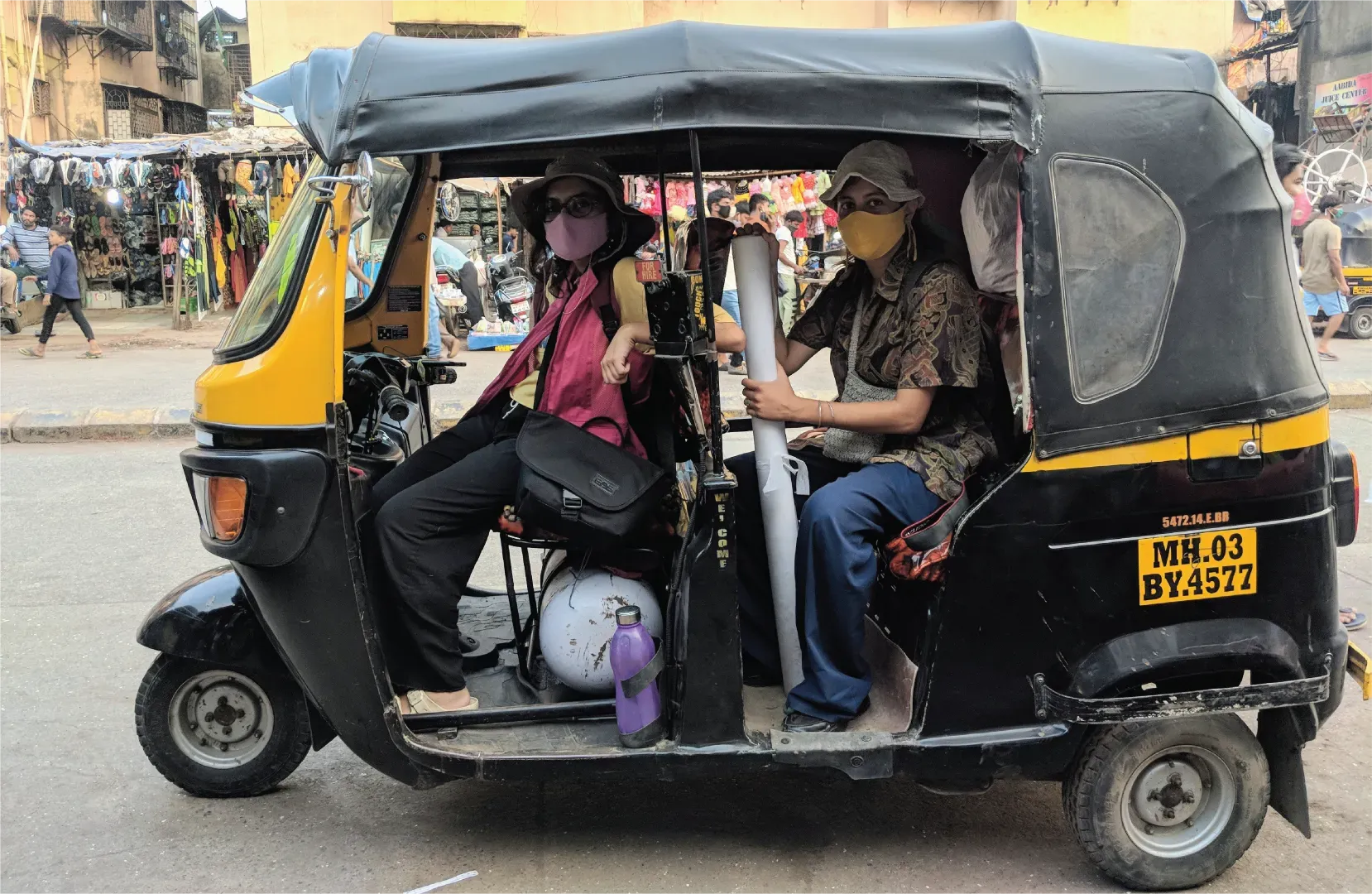
Adj.
Term of endearment, derogatory
Someone who takes timepass very seriously and may appear to be into random pointlessstuff (timepass) and may be dismissed as good for nothing, but the stuff they’re into is actually quite fascinating and they're super passionate about it and you love that about them.
“Dude they’re such waste fellows i love itt”
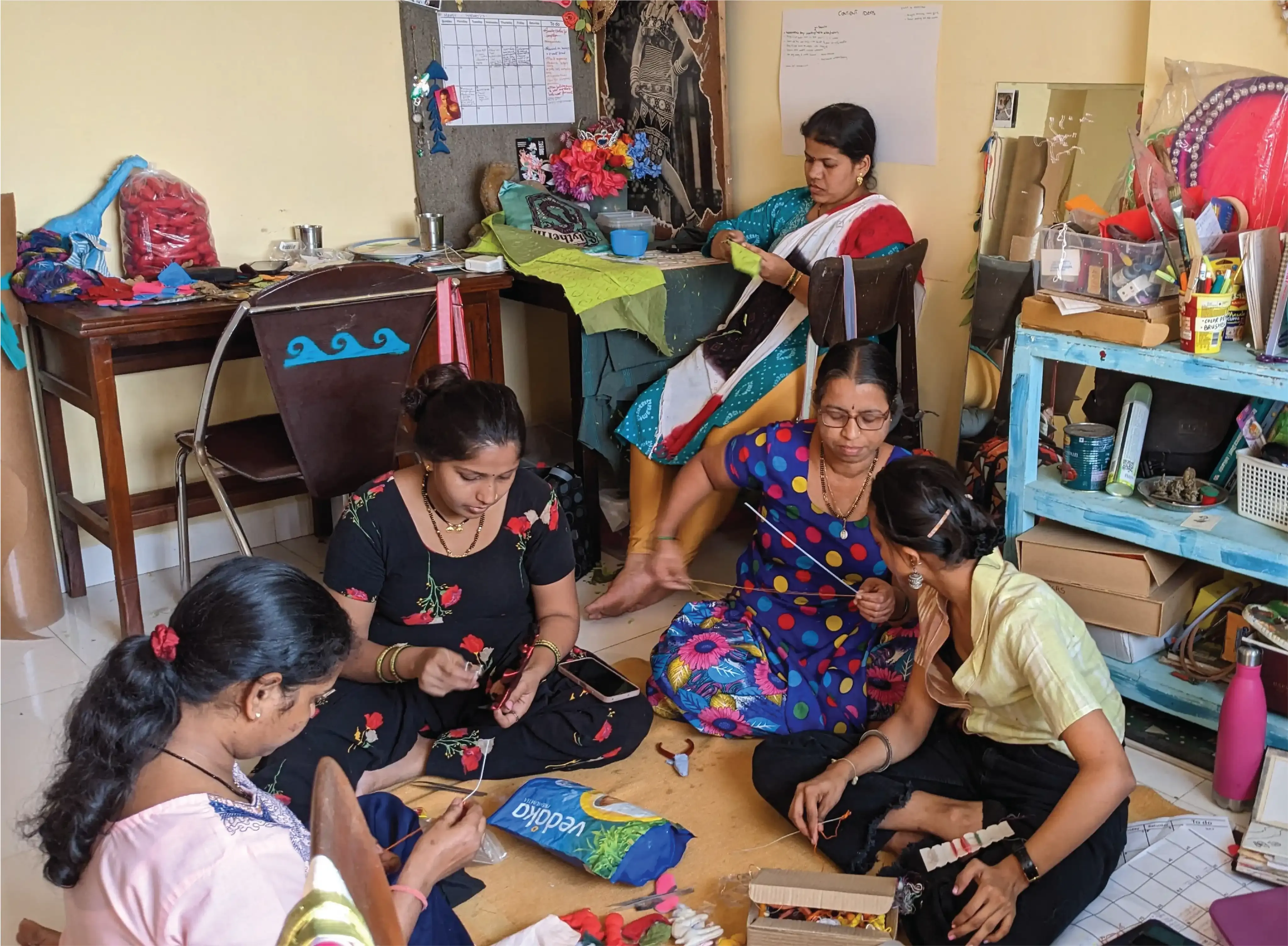
Team
We work with an amazing team of women, our very own impossible mission task force, each with their own special skill sets. Women come in with little to no prior experience and are trained in skills such as handwork, embroidery, cutting, stuffing, hand and machine stitching.
We want to create lots of employment opportunities for women to gain financial independence. We want our studio to be a safe, happy workspace, where we can all learn new skills, techniques, do some creative problem solving, and make beautiful things together.
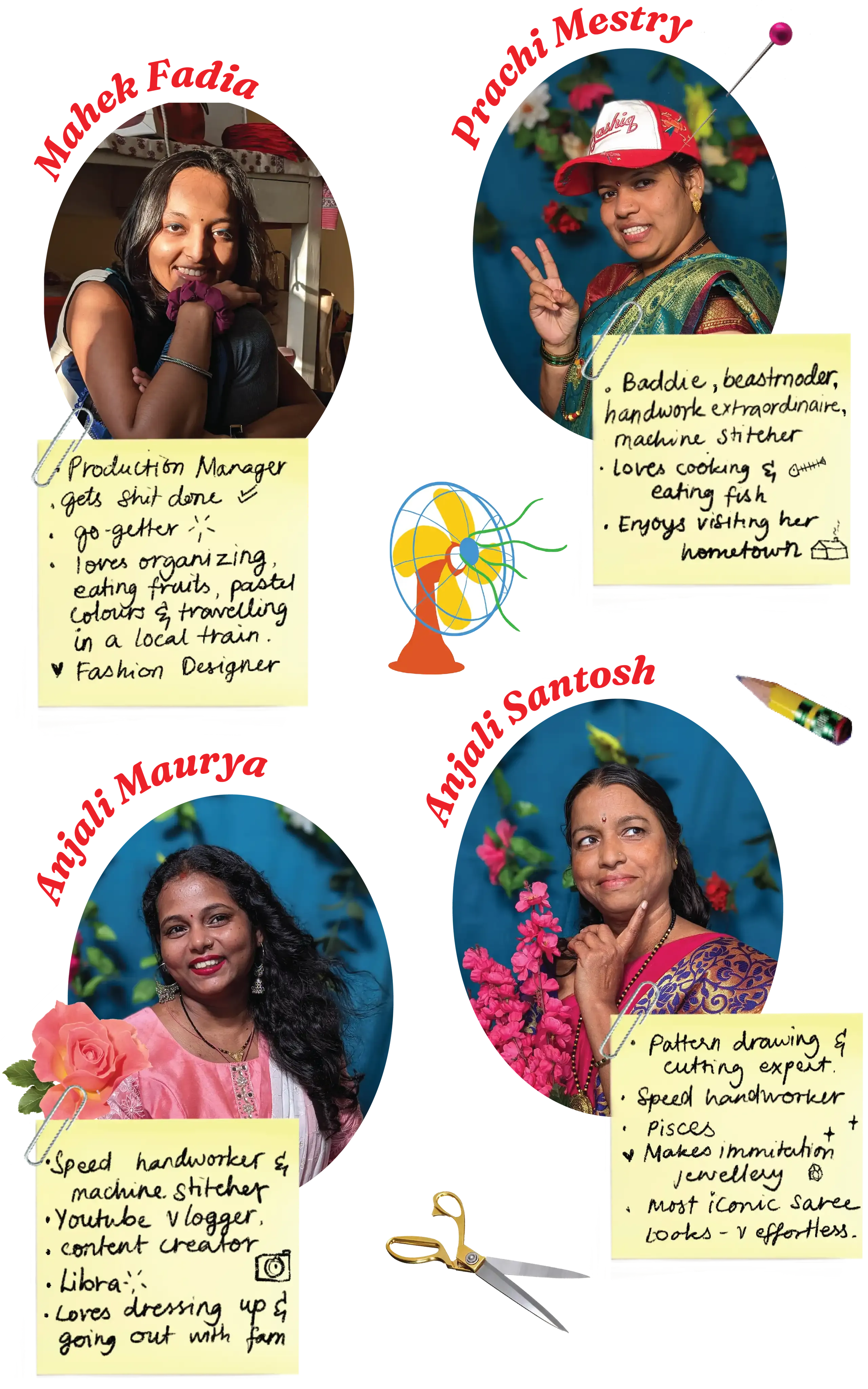
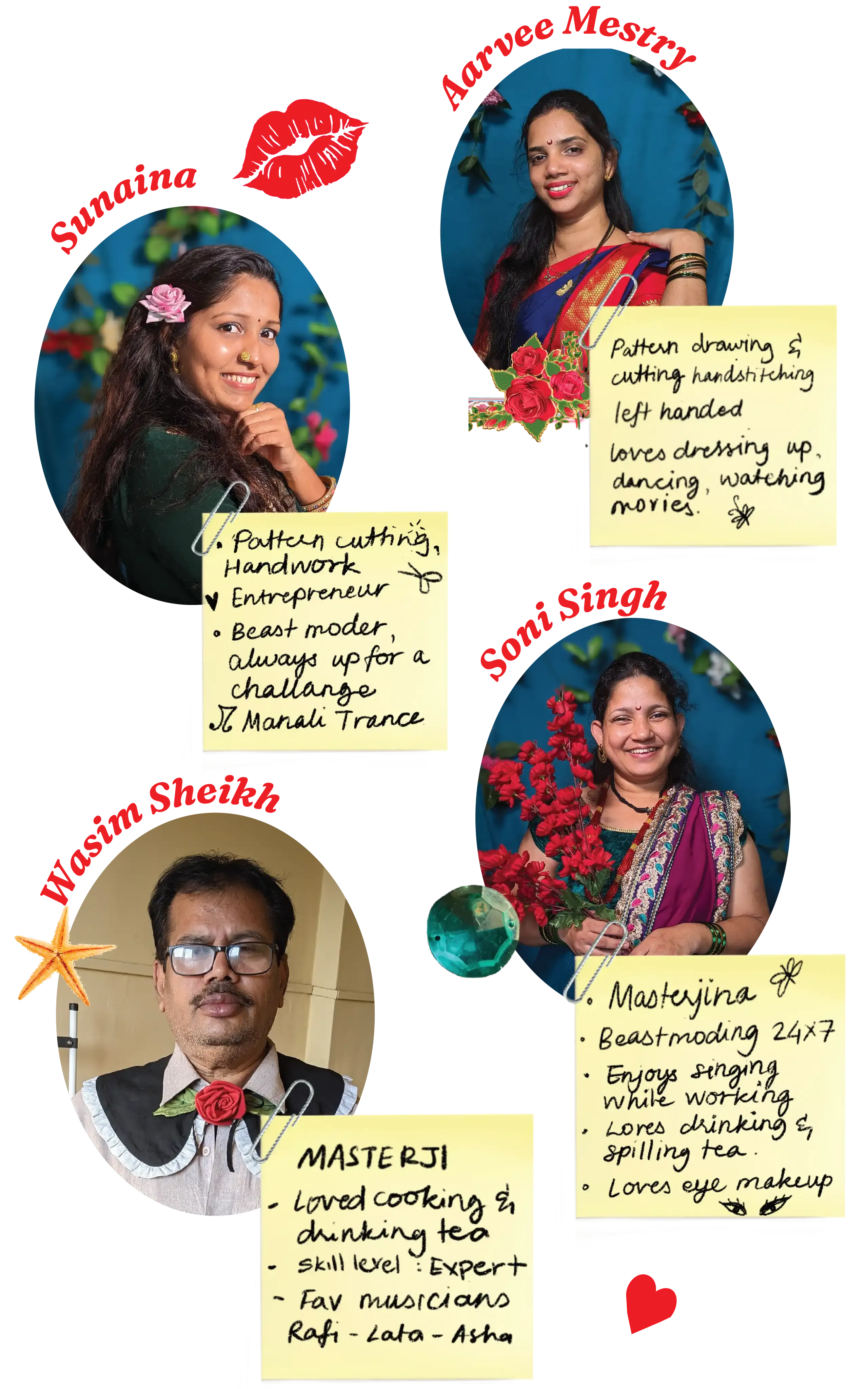
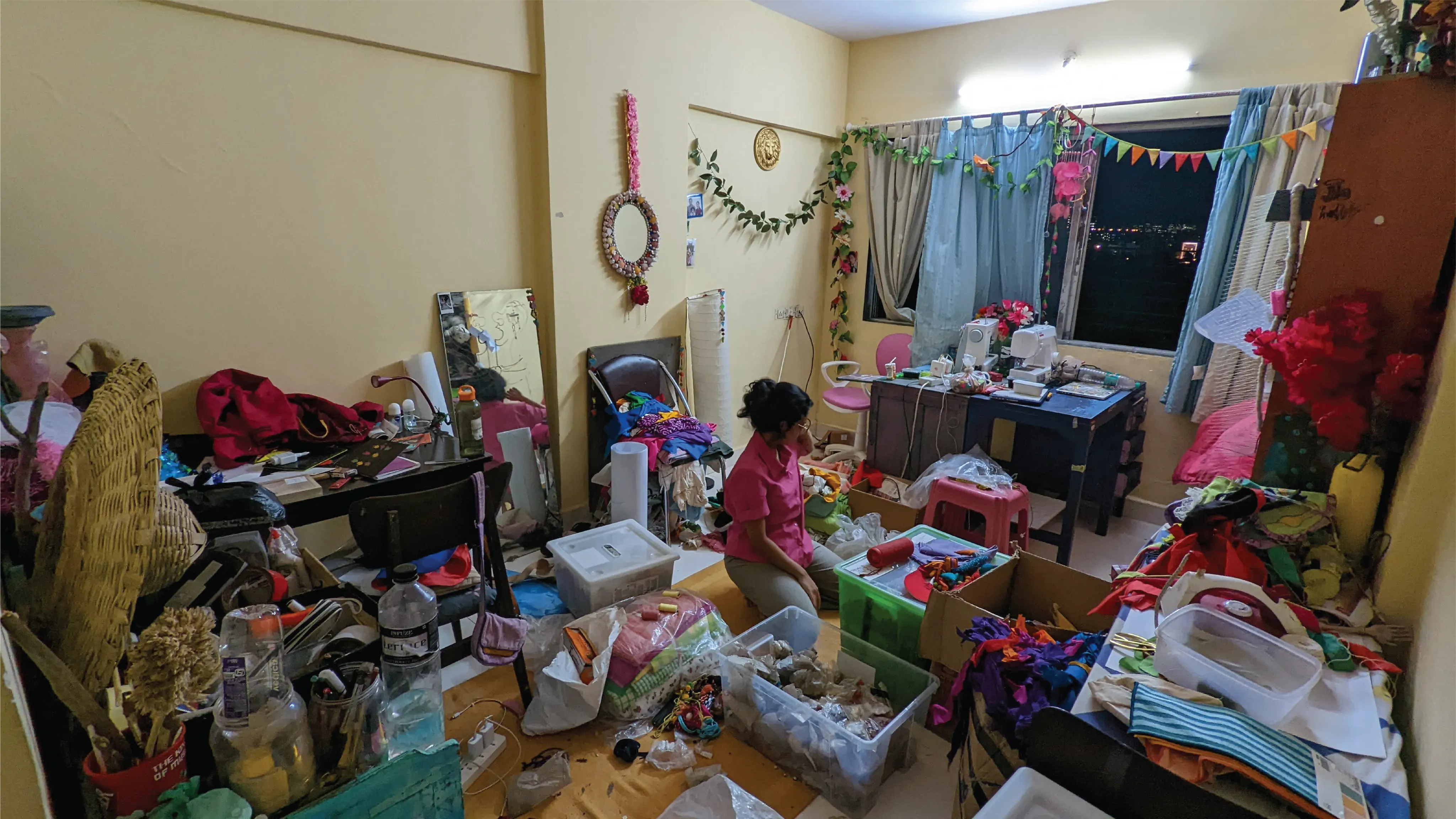
Process
We were very particular about the products not looking like they’re made of waste so the process is quite painful now but making these products is also our favourite thing about this business cuz when things work out it's the best feeling ever, our nasha of choice X.
90% of the process takes place in the studio and any waste that we generate in the process gets sorted and stored for use in other projects. Typically, you design something and then go get the materials, but for us it starts with finding materials first.
Sourcing
We go sourcing for our raw materials - pre consumer waste and get to see the craziest things - godowns filled floor to ceiling with thousands of meters of fabric in piles upto 30ft high, bags and bags of unused yarns, buttons, lace, etc. We test all our materials for colour fastness and material composition before we buy them and it has to happen quickly cuz you only find anything between 5-20 meters of one fabric at a time and you will NEVER find the same material twice (that's why limited edition).
Our Materials
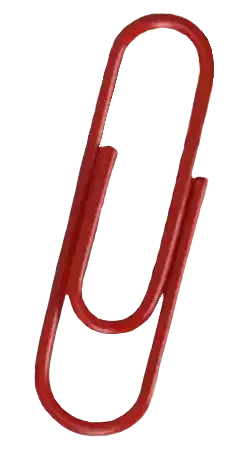
Deadstock
Dead stock is any unsold inventory that sits in storage for a long period of time and continues to depreciate in value . It is typically written off as a loss. Lots of large companies either burn their deadstock or dump it by ship into 3rd world countries (us).
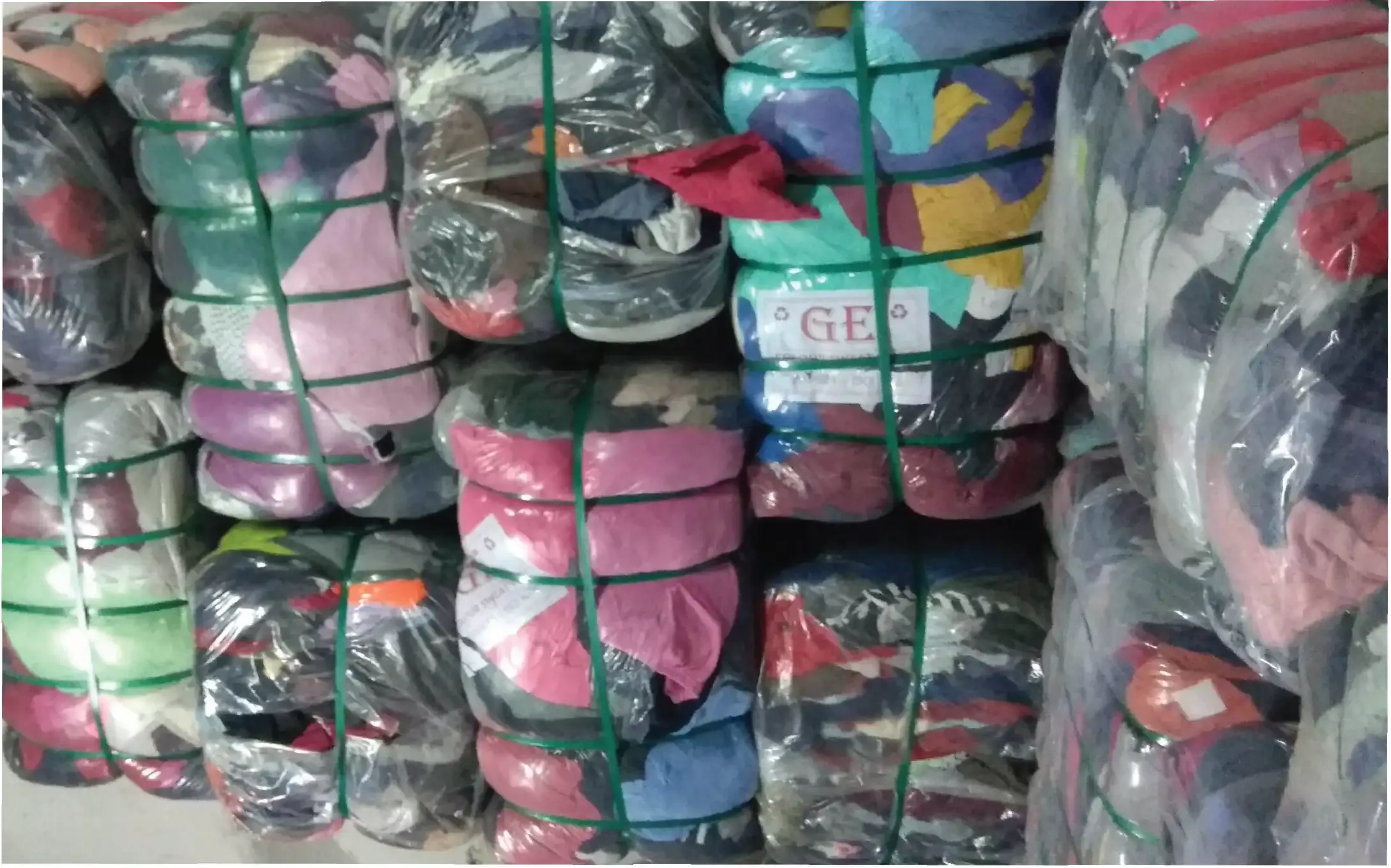

Chindi
Chindi/fabric offcuts are the leftover scrap pieces of fabric that happen once the patterns have been cut. Every galli ka tailor shop produces two big bags of chindi a week. Imagine how much factories produce :’) Chindi is very difficult to work with and is almost
always thrown way :(
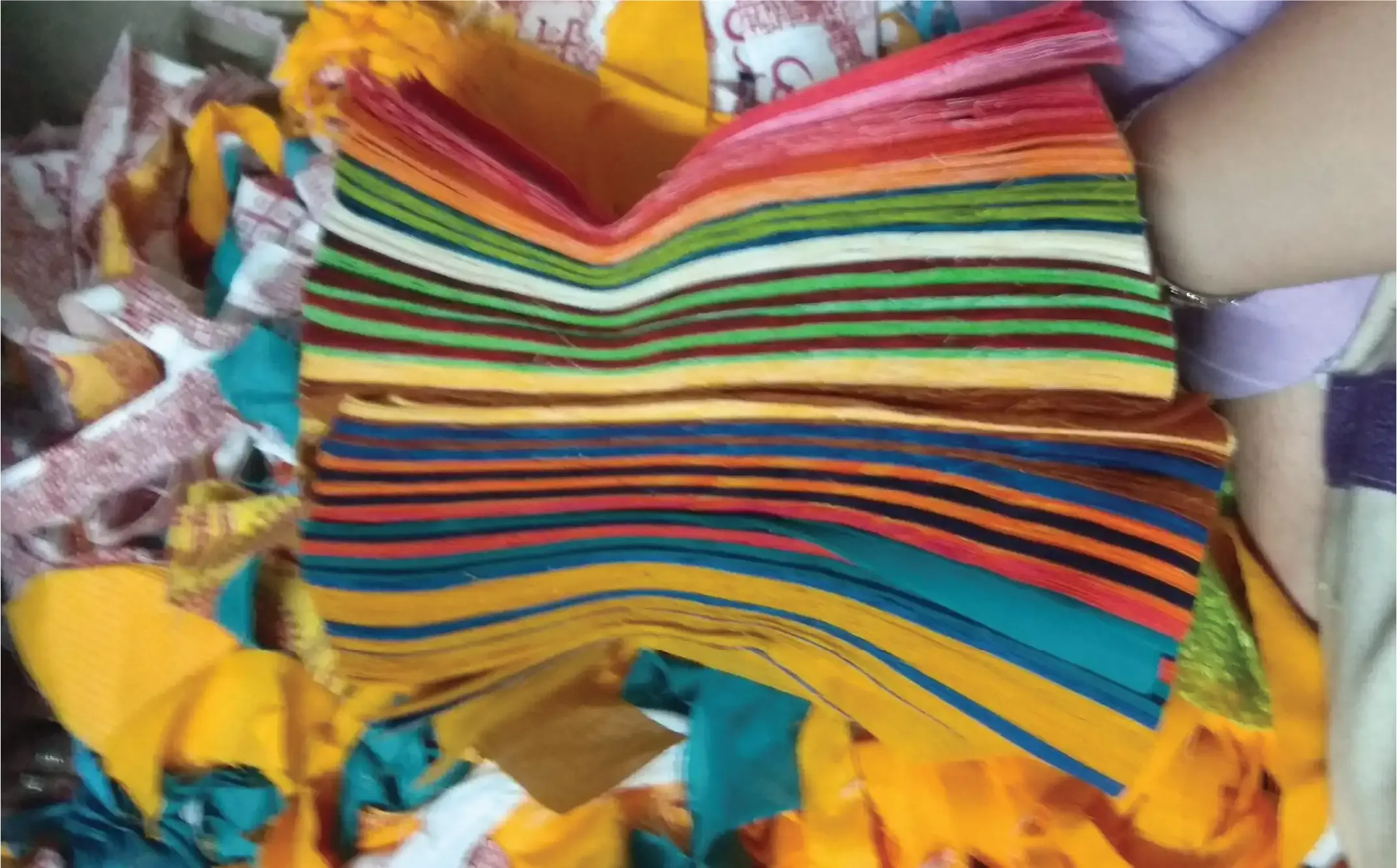

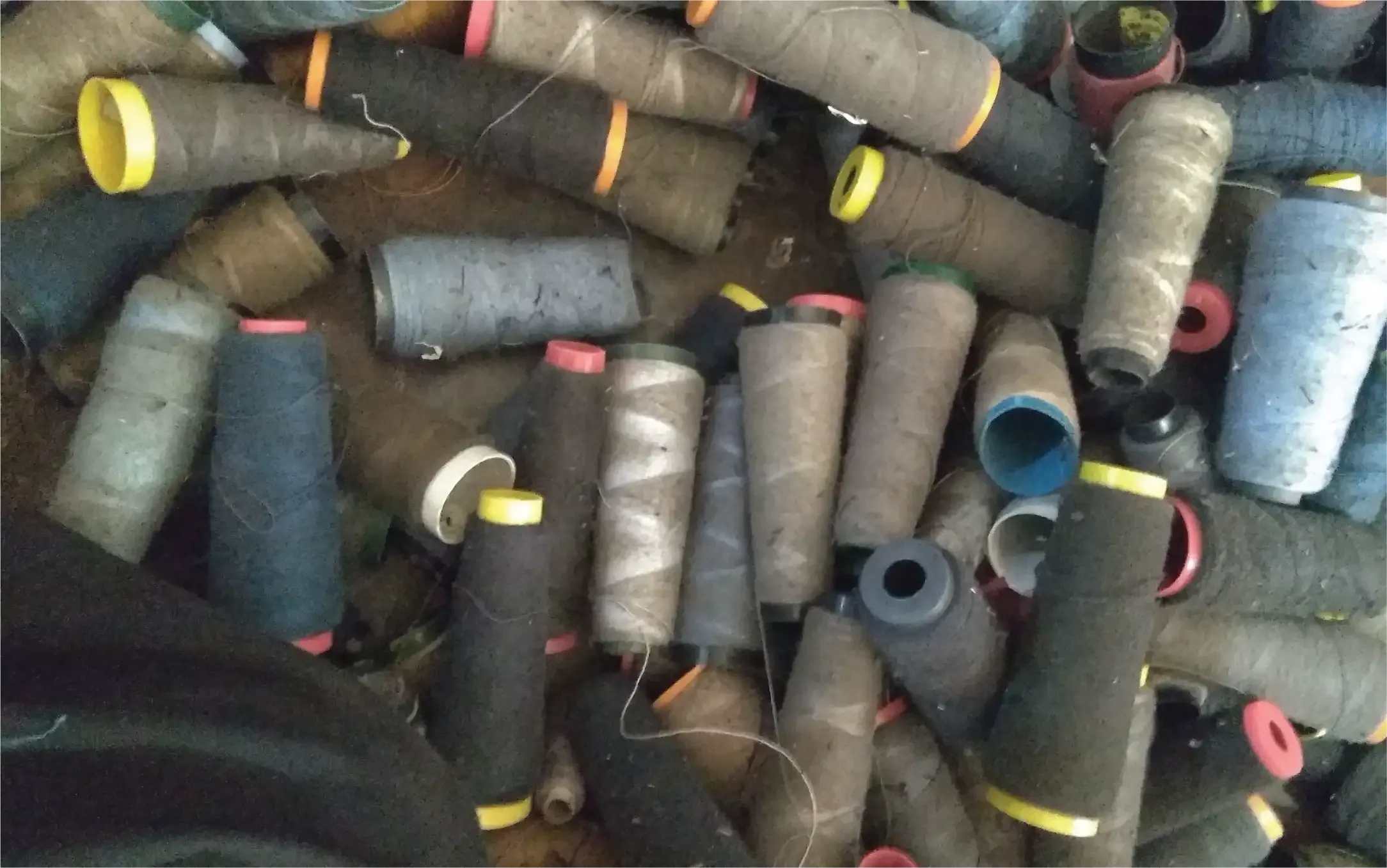
Surplus
When manufacturing anything on a monstrous scale, overproduction is very normal. Either as a precaution cuz most products don't survive quality check and it's good to have extra, or because of large MOQs. Surplus is either destroyed, or dumped landfills or sent to 3rd world countries.

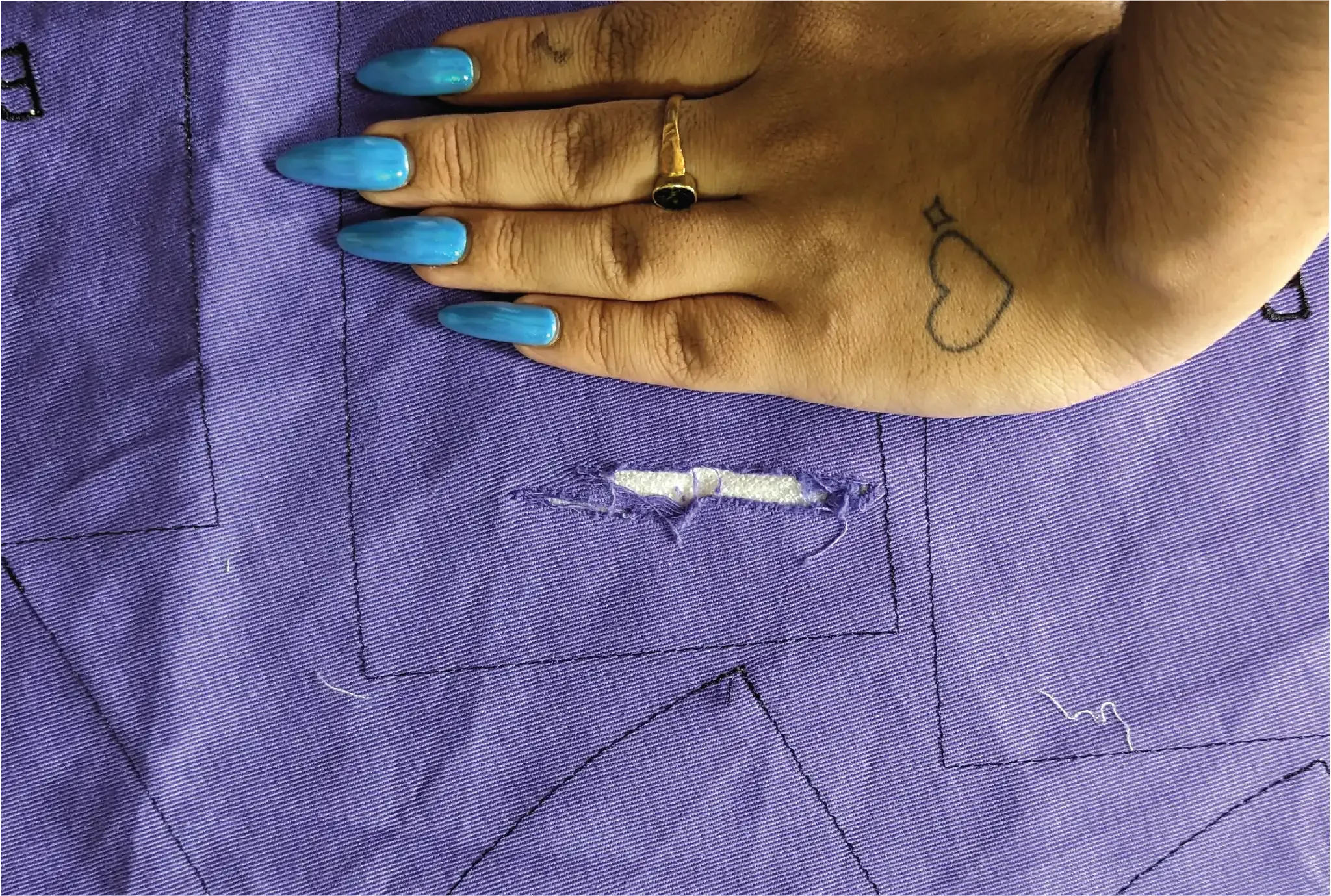
Damaged
During manufacturing, fabrics are bought/made in large lots of 1000s of meters. If a tiny rip or stain is found anywhere on it, either a 20 meter bolt around the damage is chopped and thrown away or the whole lot is discarded and sent back, so it either gets resold or dumped.
Designing & Sampling
Our product ideas come from lots of different places. Moments from our own lives, objects we would love to use ourselves, stuff that makes us laugh, all these things appear as amusing little details on the products, packaging, etc which make up our unique Juhu Beach Studio design language. Any limitations a material poses force us to get super creative with what we make out of it. And since we make limited quantites we can really go nuts and experiment with unusual designs.
700
mts of textile waste
1,556
products
Production
Because of our irregular raw materials, we can make lotsss of different products but only as limited editions. We also like to use a mix of machine and handwork which gives us so much room to create one of a kind details and make everything sturdy and high quality. After drawing, cutting, stitching, ironing, embroidery, etc all of the sketches are finally turned into our beautiful finished products.
Agenda
1
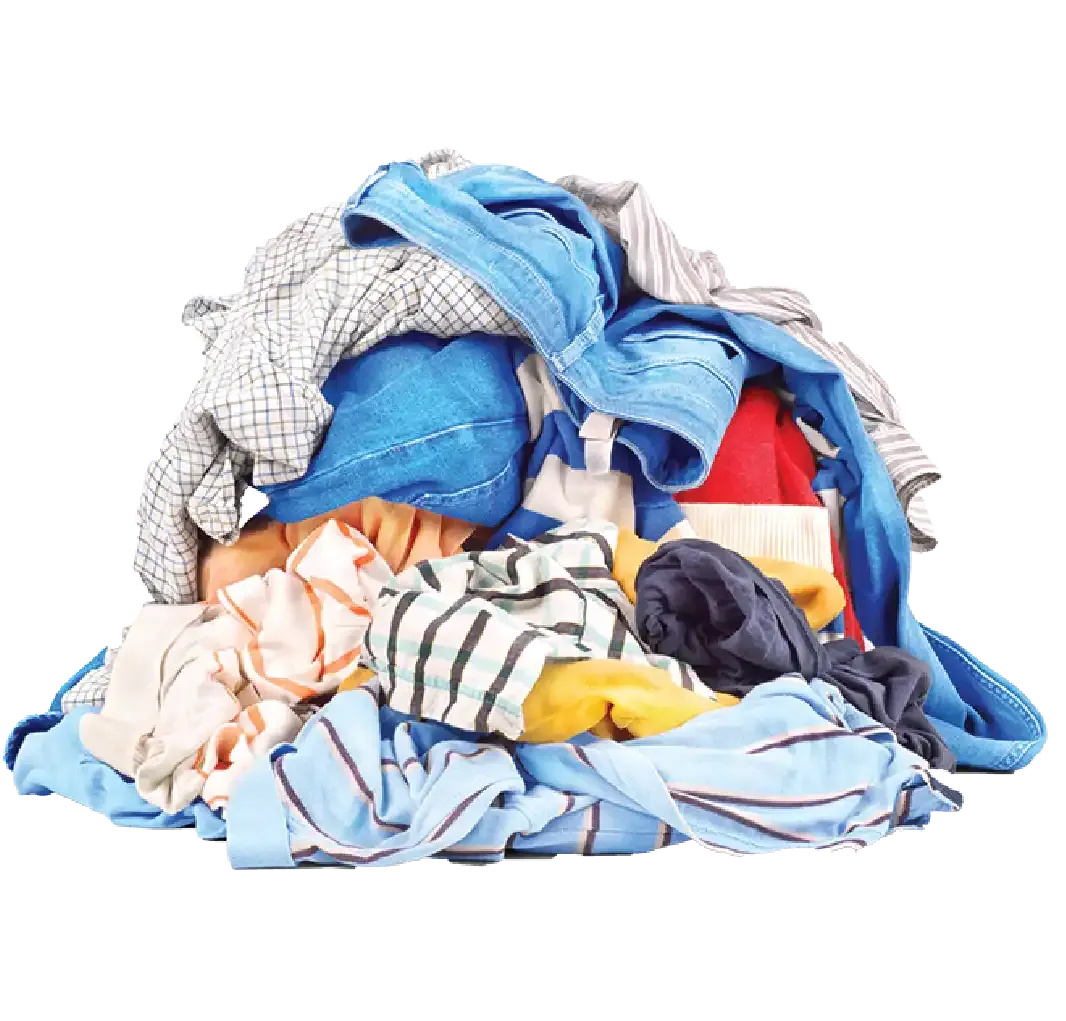
To explore pre-and post consumer textile waste as a viable raw material for a scalable enterprise. Basically build a kachre ka empire
2
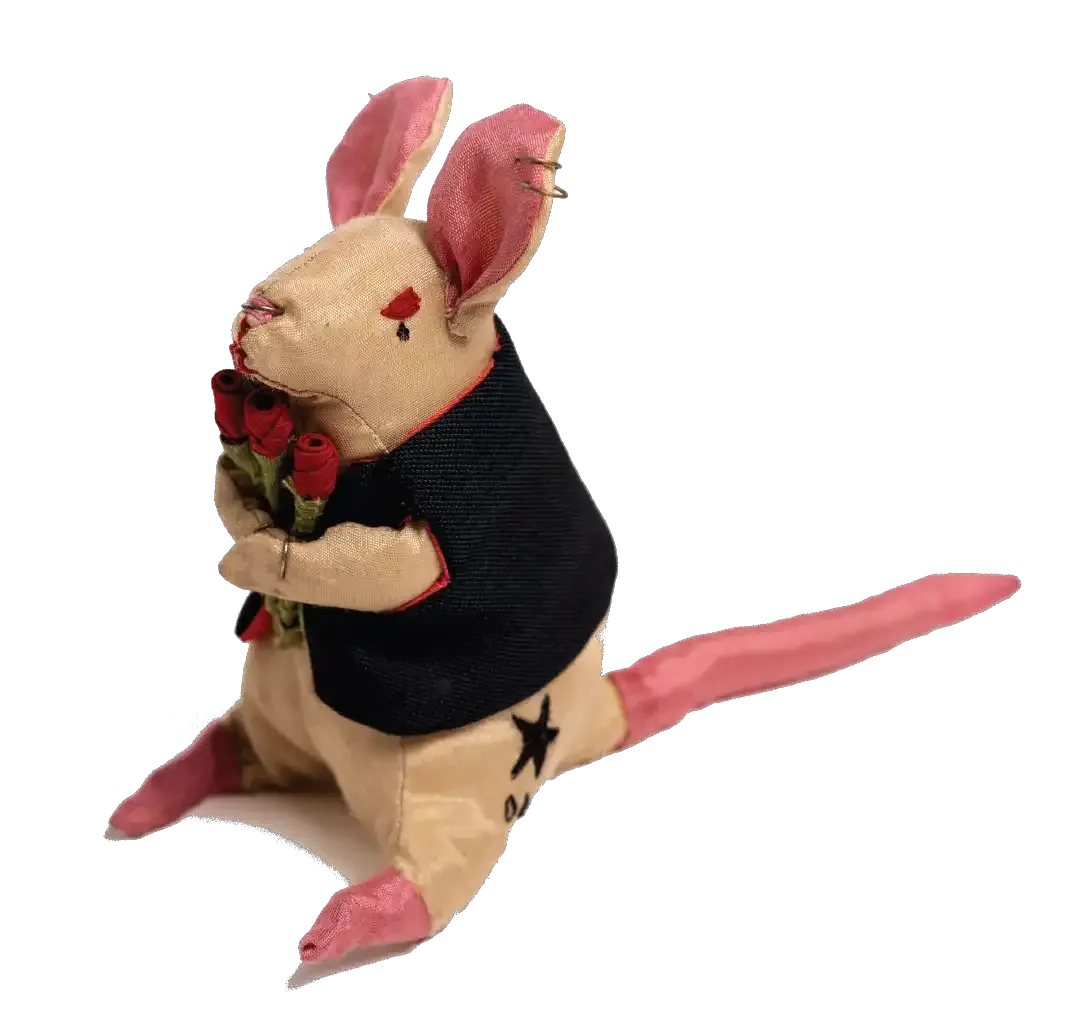
Make beautiful, magical, high concept, high quality products that we’ve always dreamed of making and having
3
Create a community of other creative wastefellows who share our love for beautiful sustainable products and an unshitty future for ALL
4
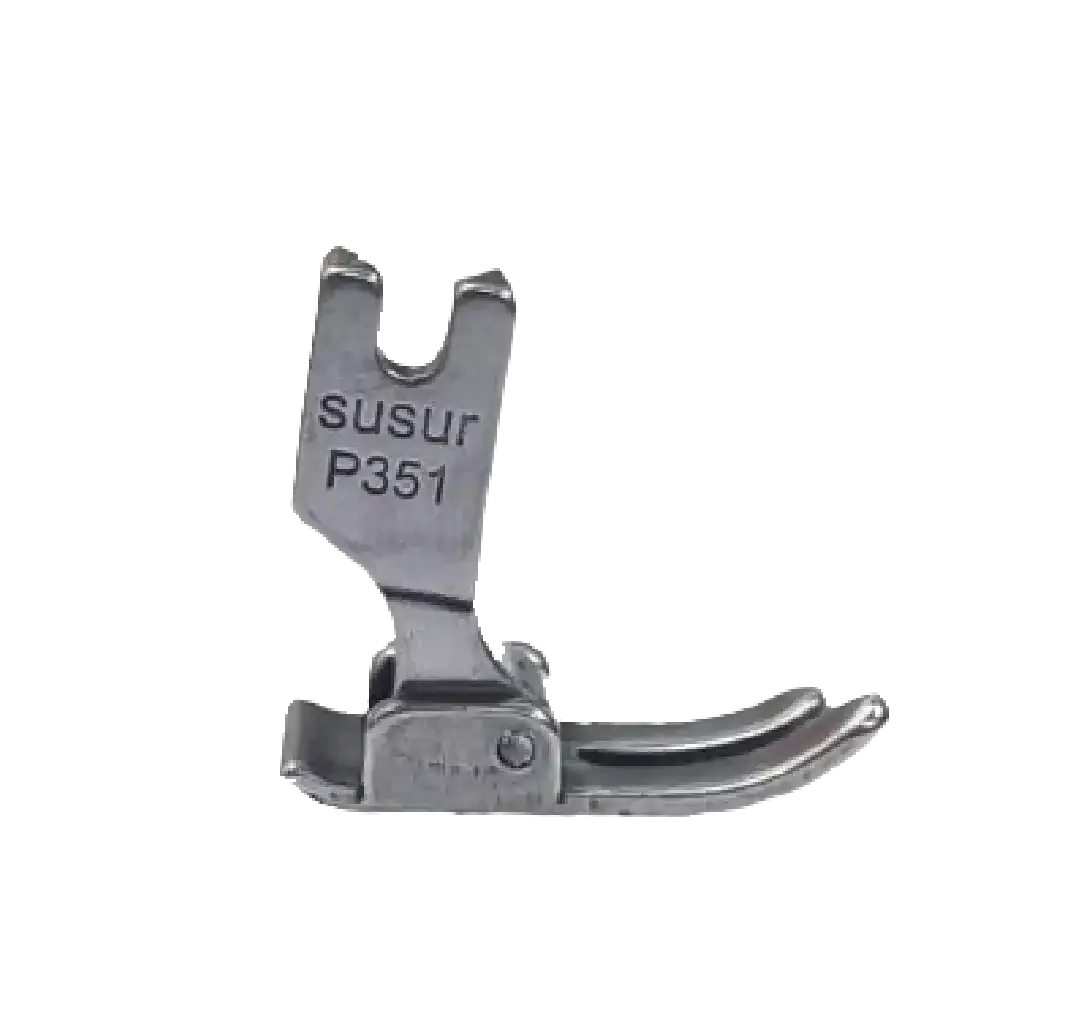
Create lots and lots of jobs and build a highly skilled team of women who can make anything and everything
5
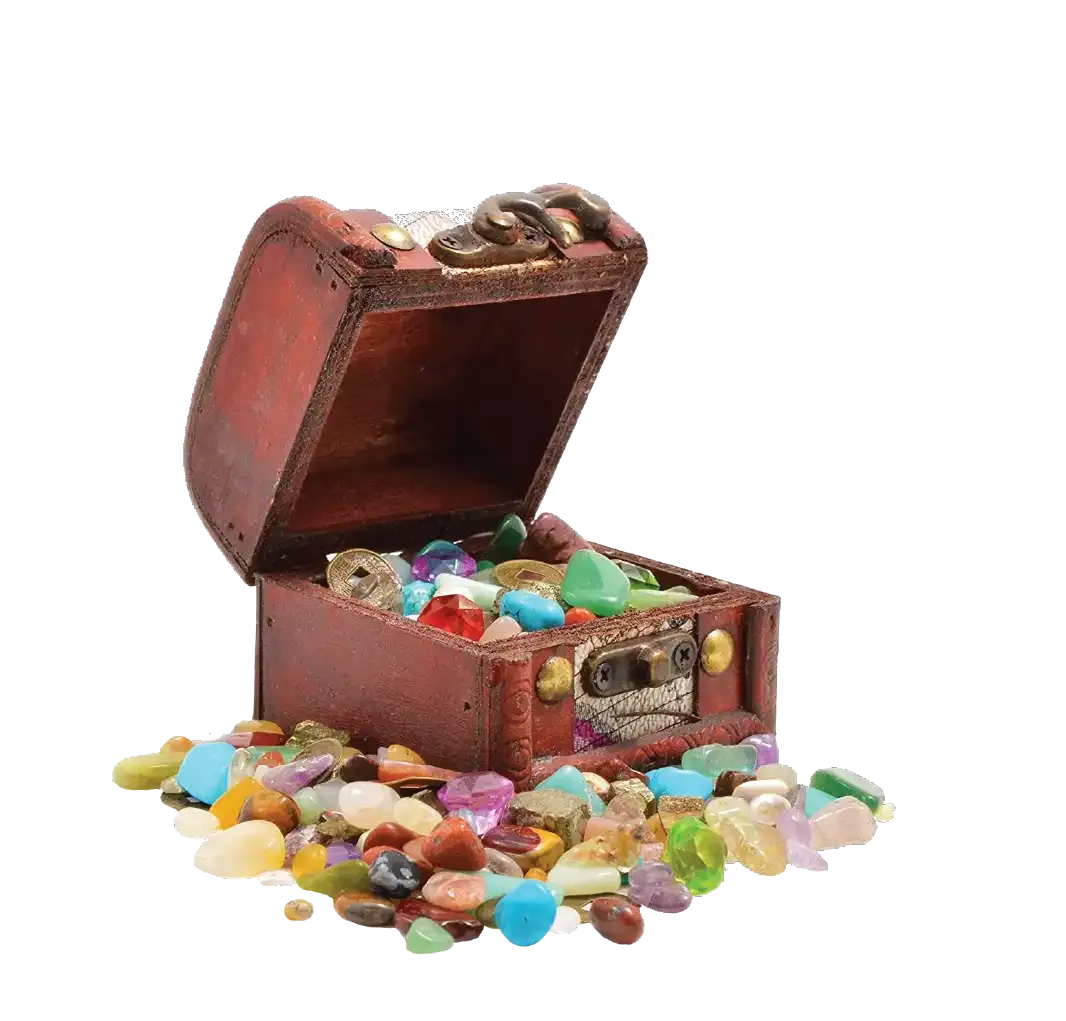
Get funding and start a giant pink factory with a recycling plant that runs on green energy
